Inside Trust Summit 2024: Shaping the Future of Digital Trust
In the third edition of its annual flagship event, Trust Summit 2024, IITB Trust Lab once again showcased its role as a leader in India’s Digital Trust landscape. Held on October 17-18 at the IIT Bombay campus, the Summit brought together over 100 participants from industry, government and academia. It featured a workshop in Hardware Security, explored the role of CSR in supporting Digital Trust initiatives, and saw the launch of TrustNet—a collaborative platform to foster innovation in Digital Trust across India.
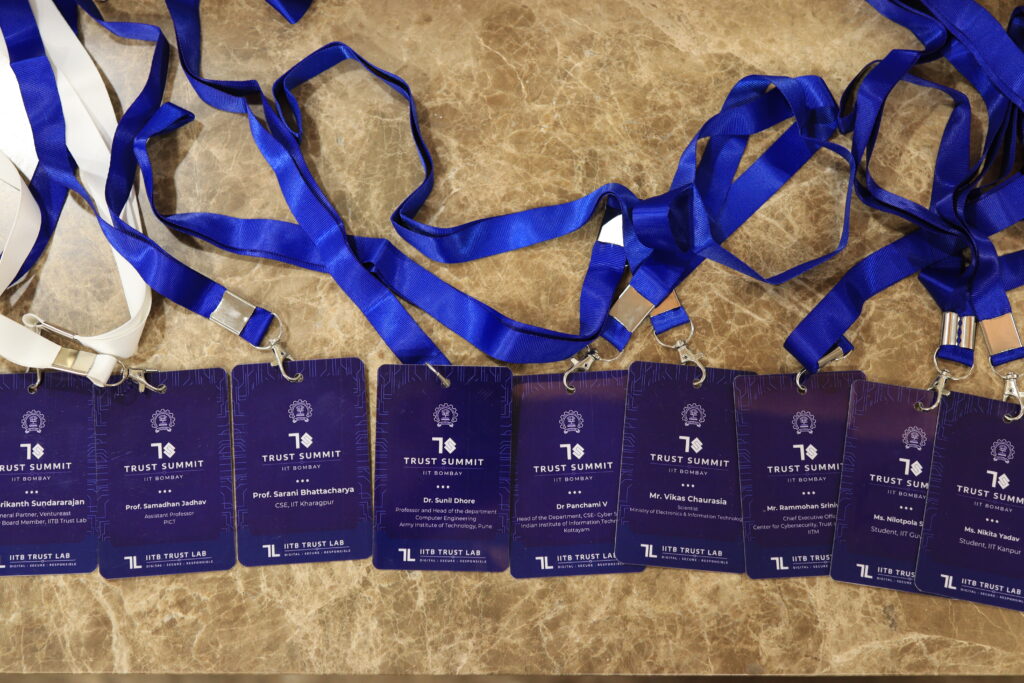
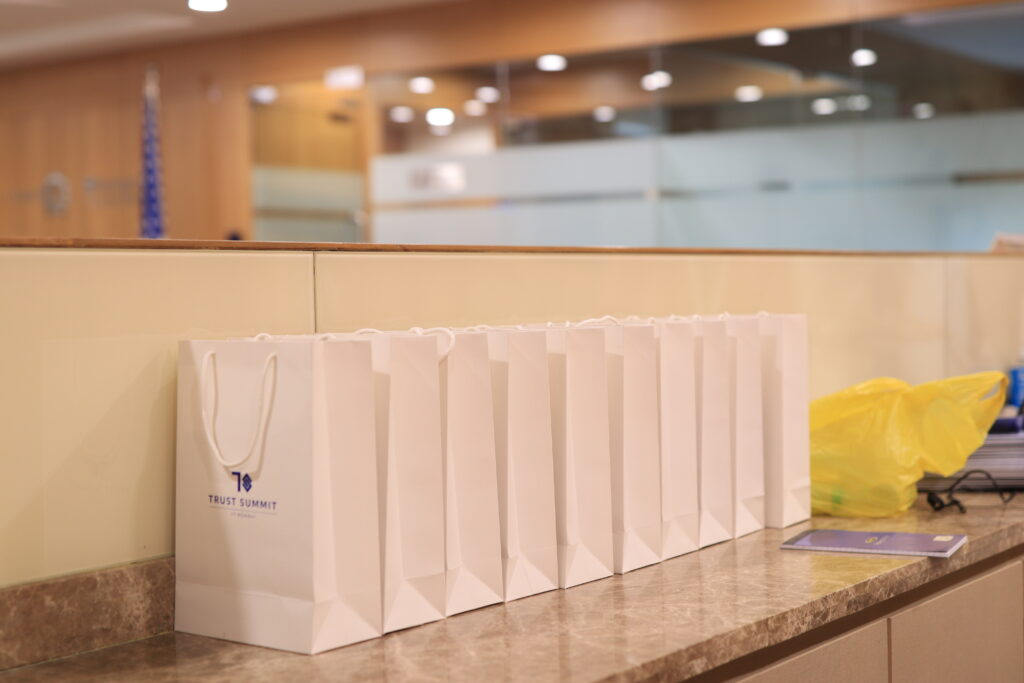
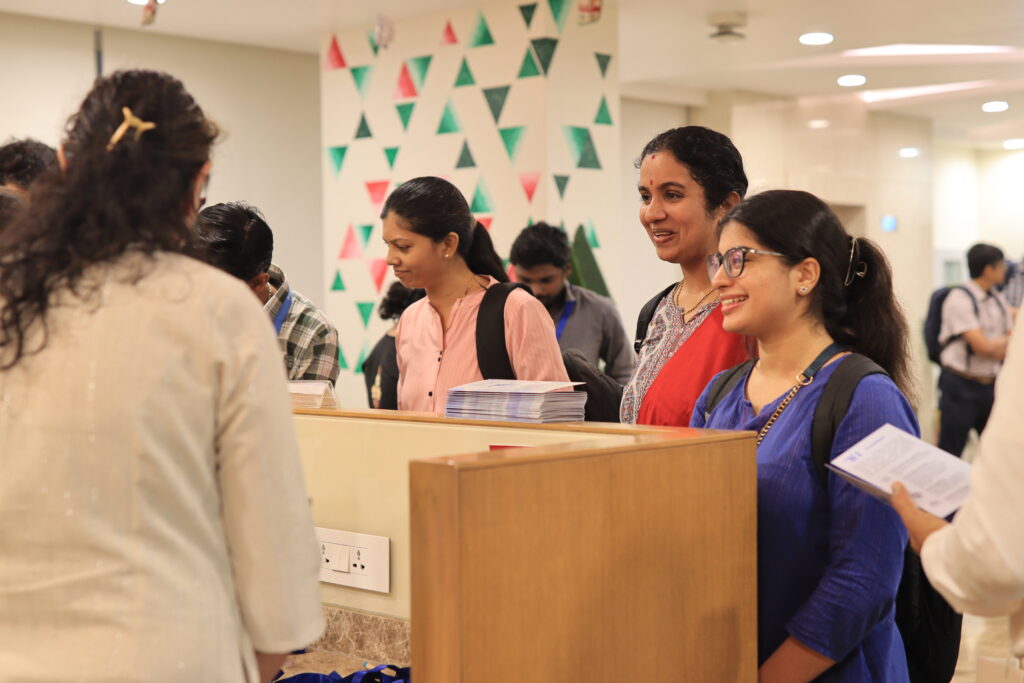
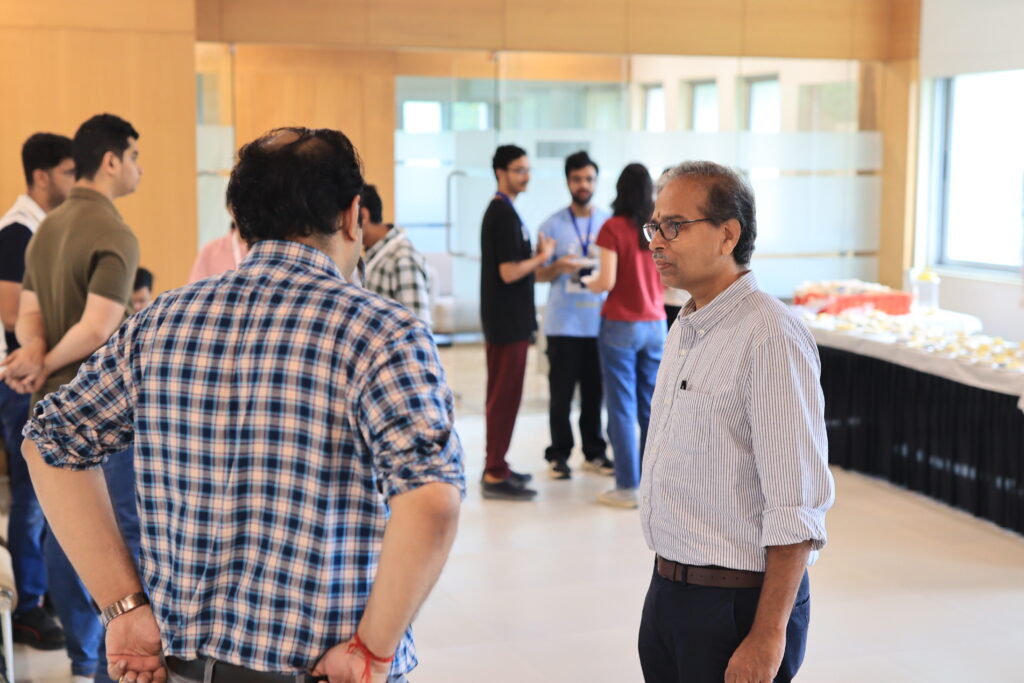
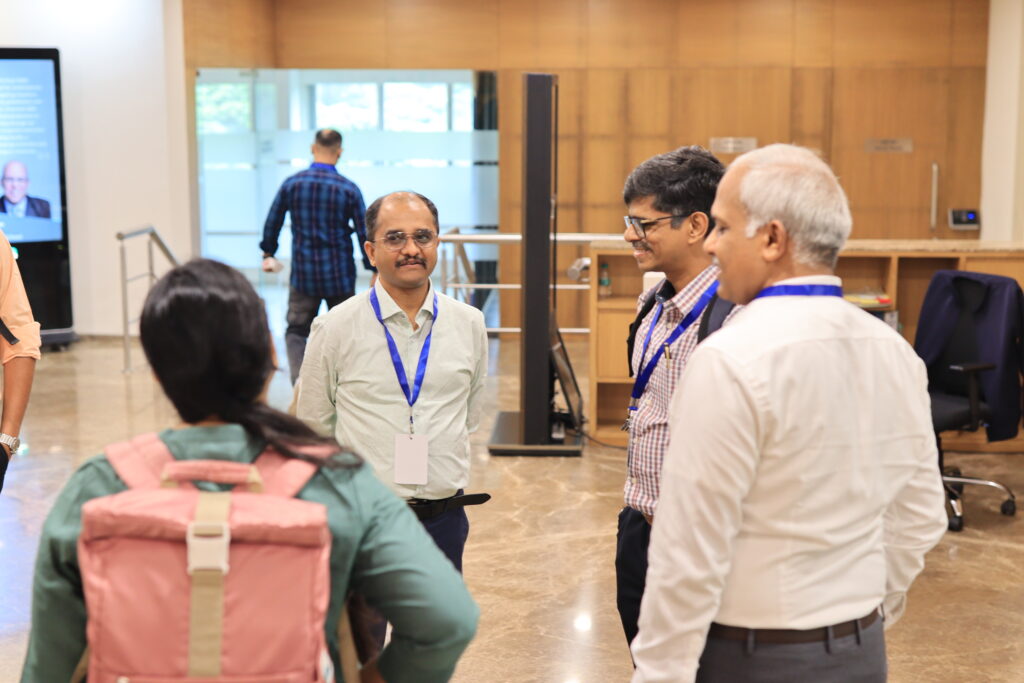
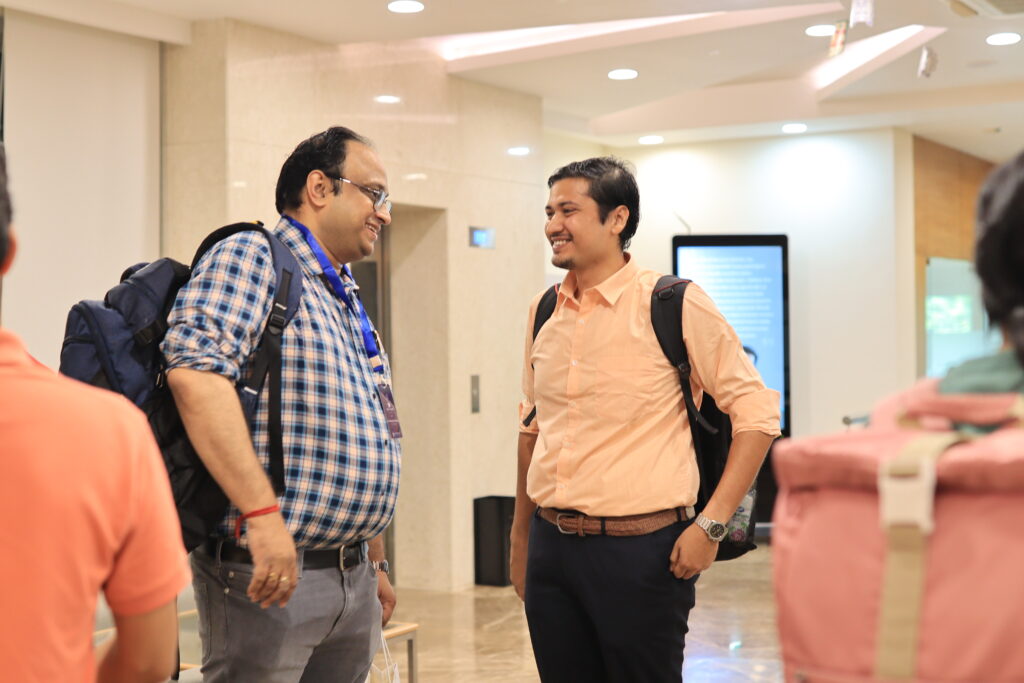
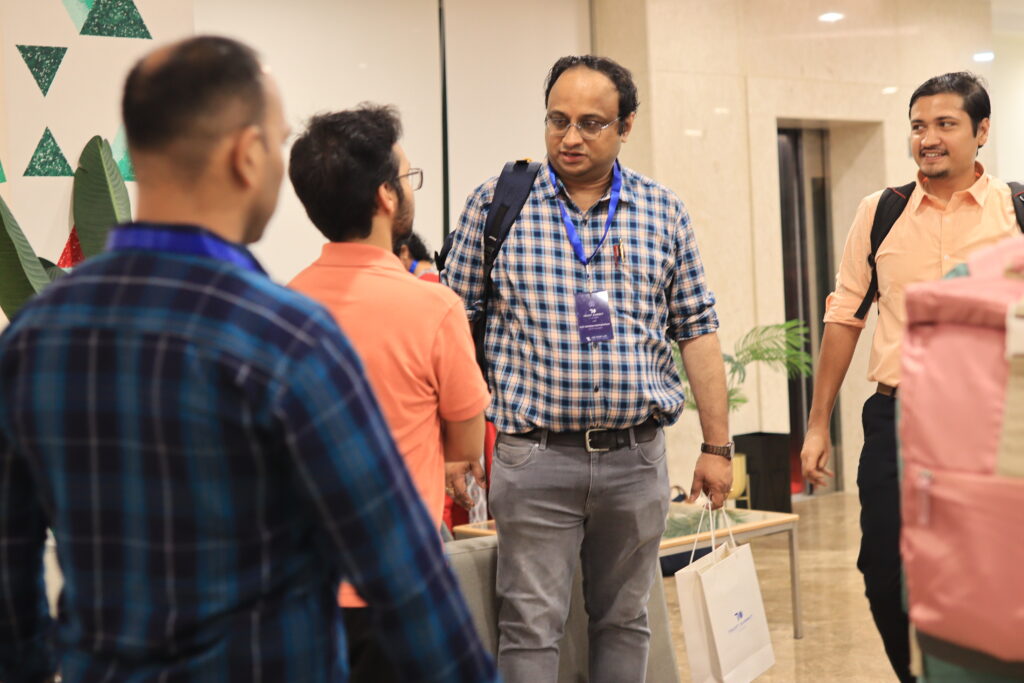
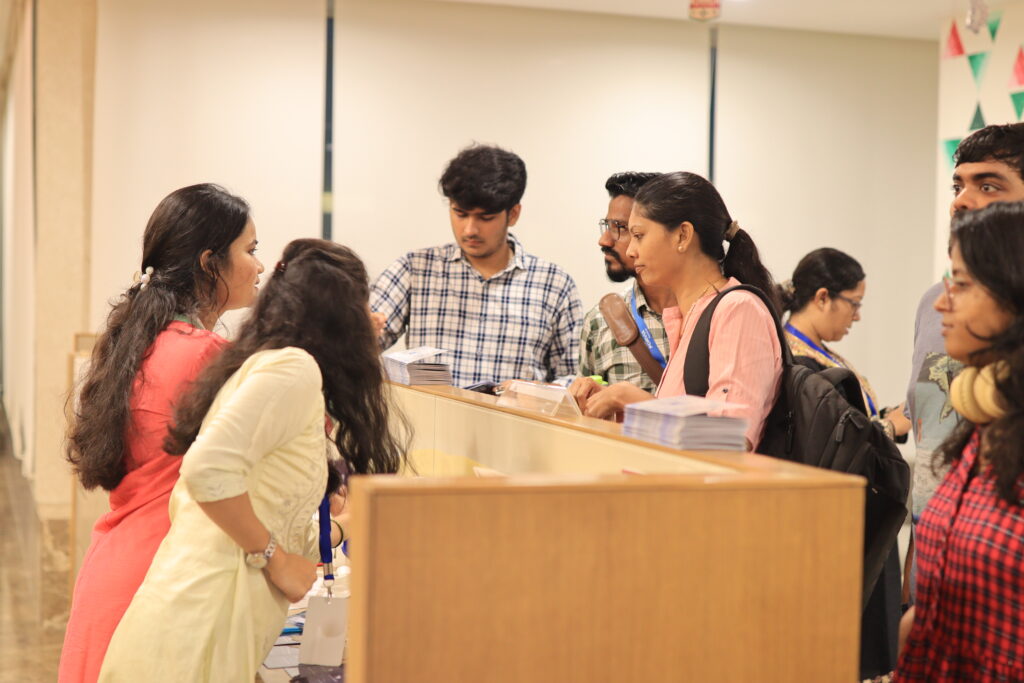
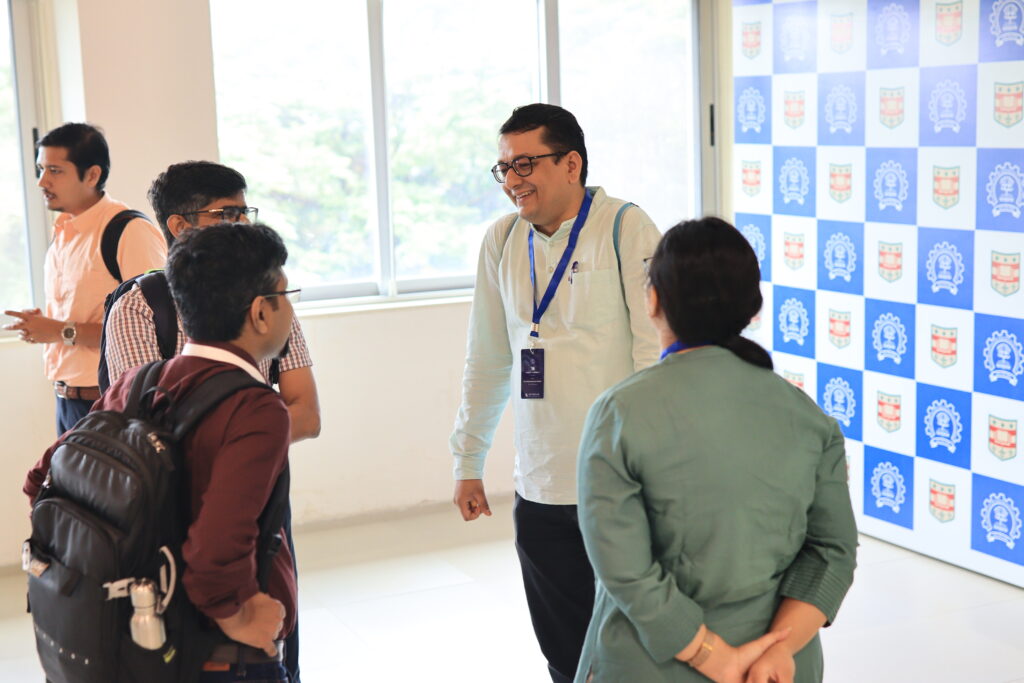
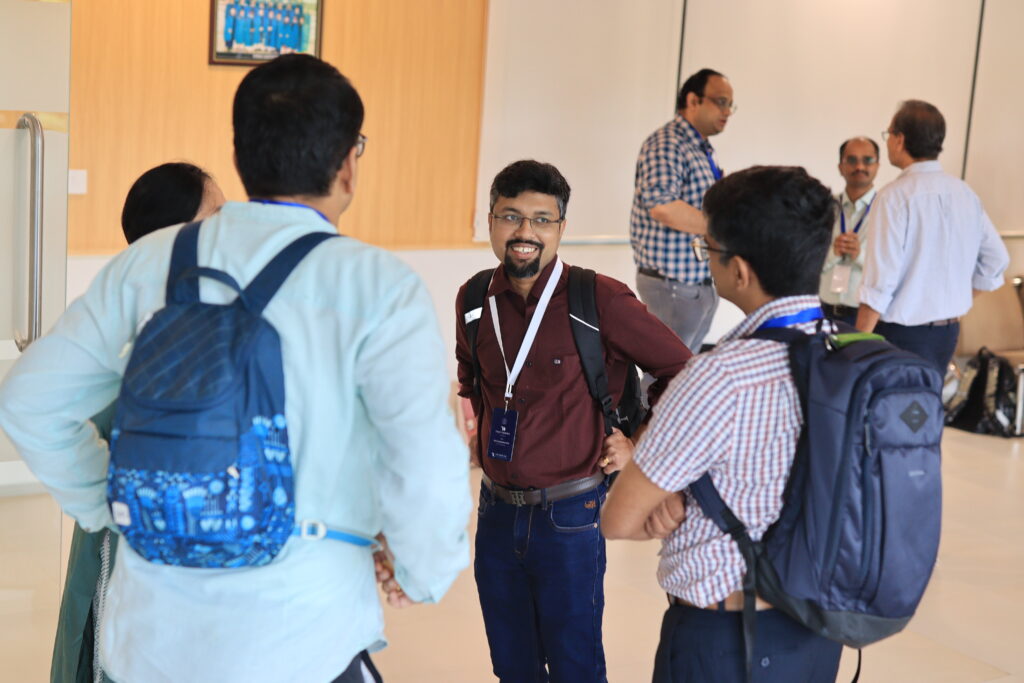
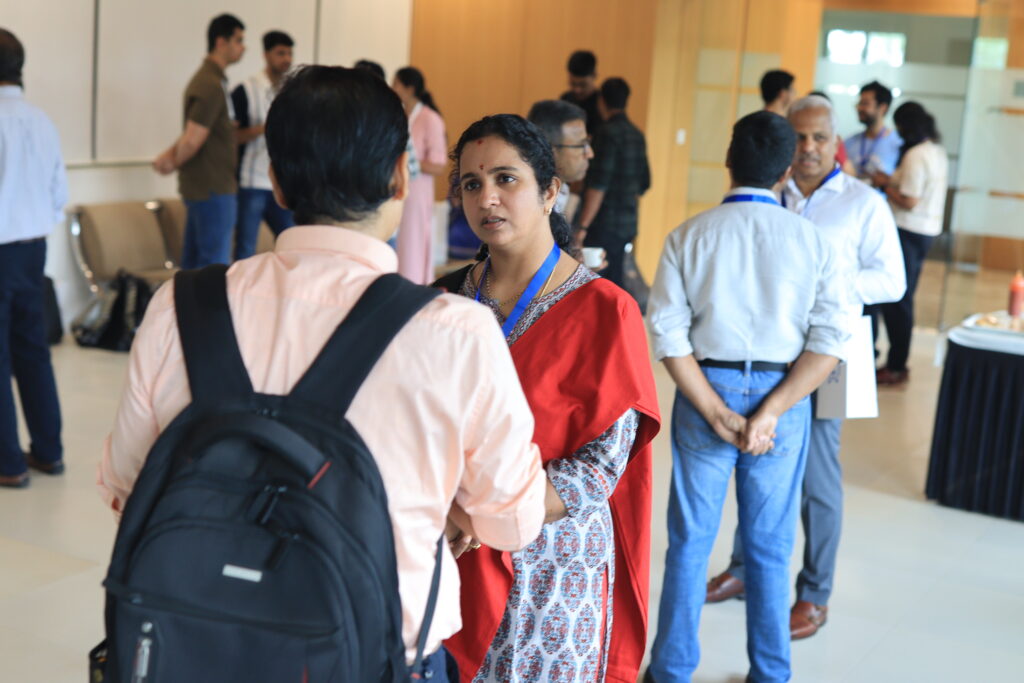
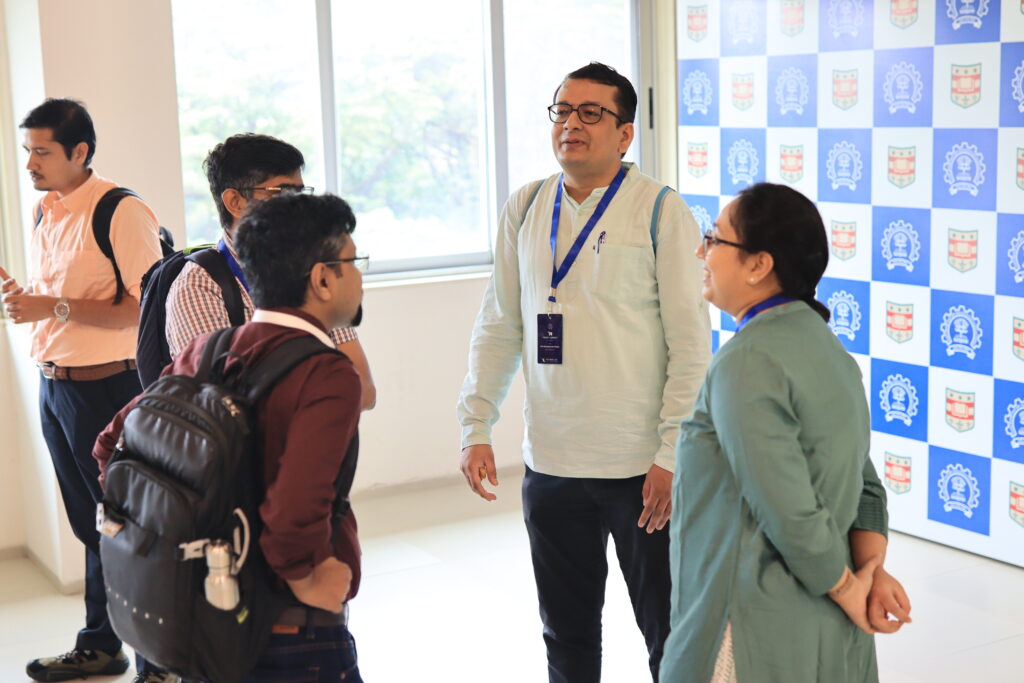
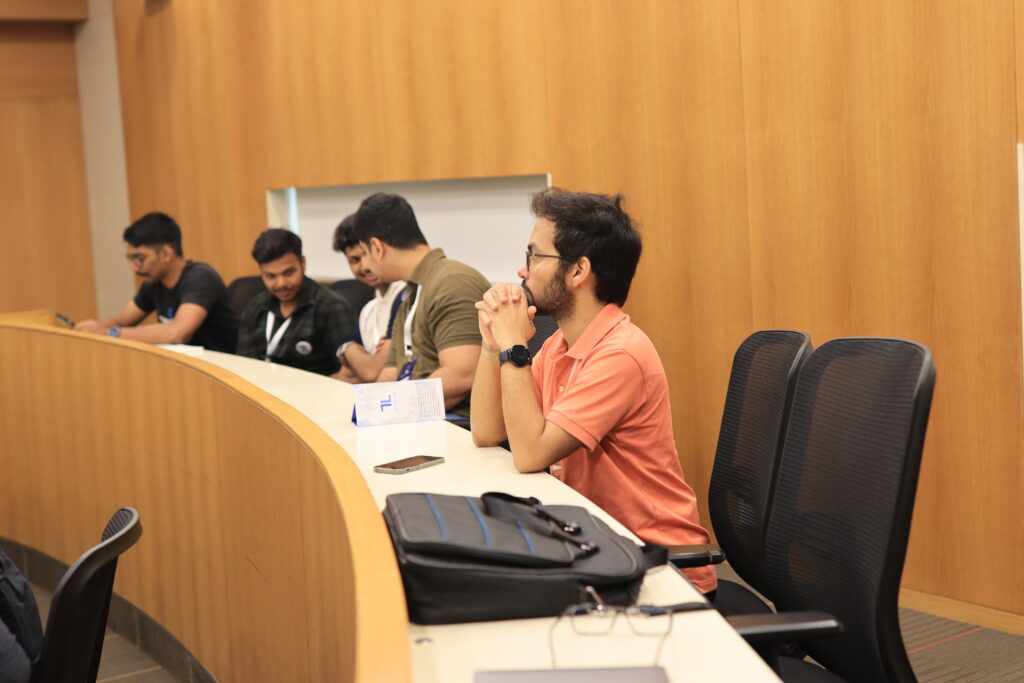
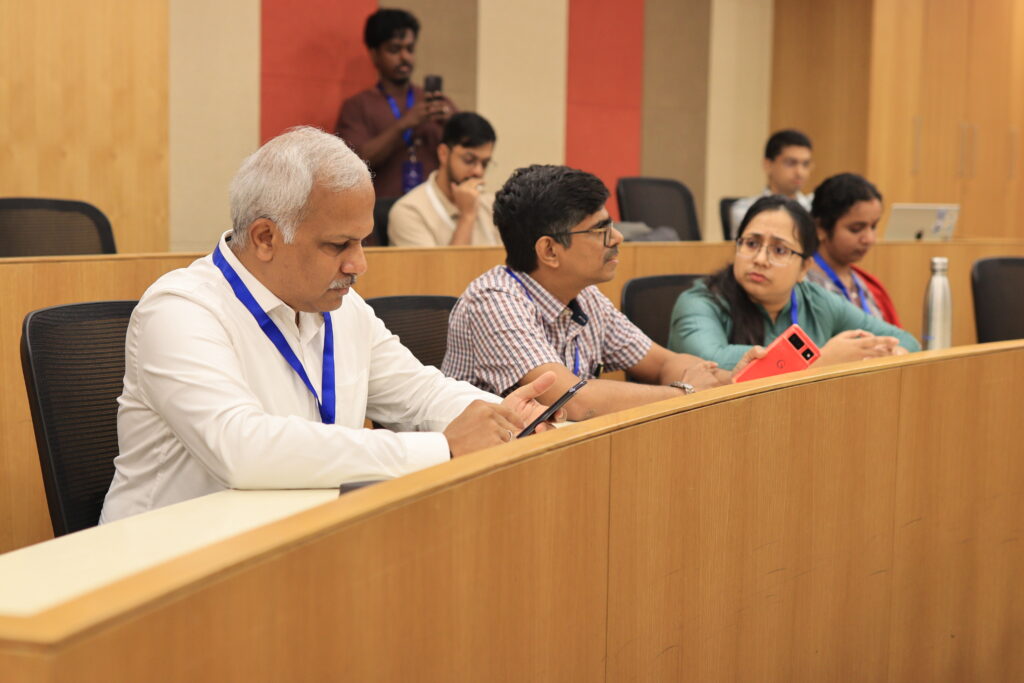
IITB Trust Lab hosted the third edition of its annual flagship program Trust Summit on October 17-18, 2024, bringing together over 100 participants from industry, government, and academia to the IIT Bombay campus. The two-day summit focused on current challenges and opportunities in India’s Digital Trust landscape, structured around the Lab’s three core verticals in Research, Technology, and Ecosystem.
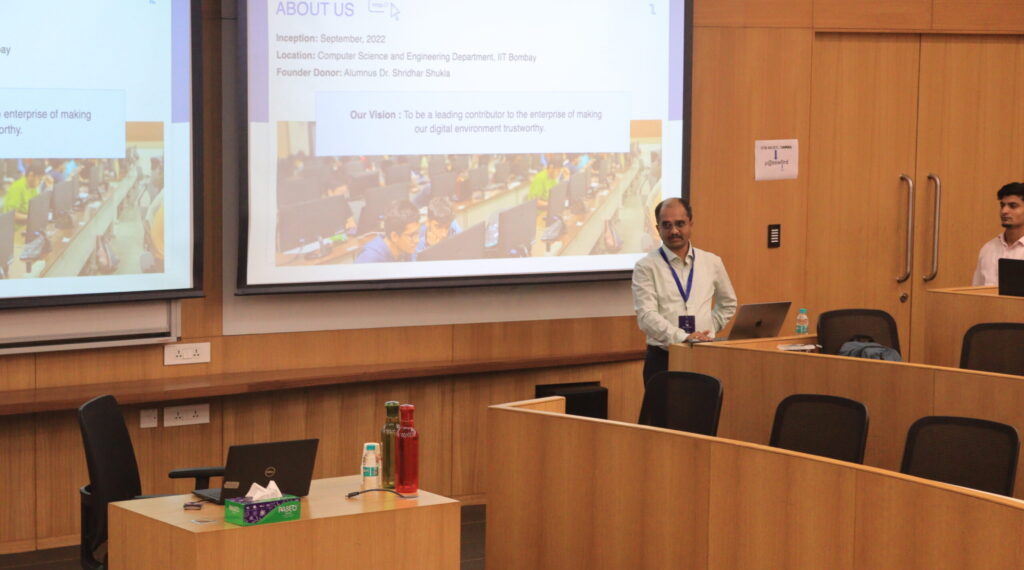
Day 1: October 17
The Trust Summit 2024 kicked off with Mr. Mukul Joshi, Program Director of IITB Trust Lab, presenting an overview of the lab’s two-year journey. He highlighted significant achievements across its three focus areas.
The day then moved to its primary focus – a closed-door Hardware Security Workshop featuring experts from academia and industry. The workshop highlighted critical advancements in Hardware Security and Cryptography through keynote addresses and panel discussions.
Hardware Security Workshop
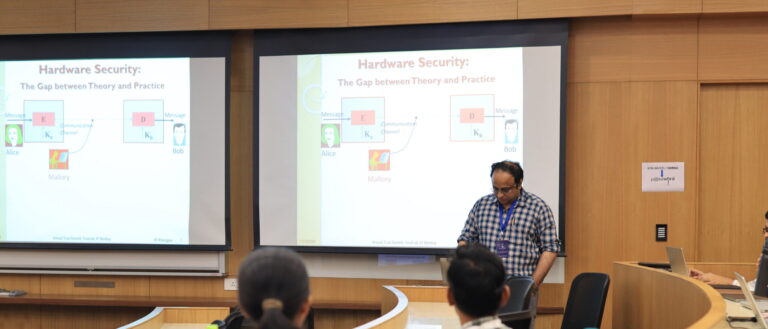
Prof. Debdeep Mukhopadhyay, a renowned Indian cryptographer from CSE, IIT Kharagpur delivered the first keynote “Hardware Security in the Modern World Baby-Step Giant-Step Approach!”, addressing the critical role of hardware security in modern computing. His talk focused on practical challenges, particularly side-channel attacks and fault tolerance, emphasizing the necessity of building security into hardware design from the ground up.
He also shared insights on IIT Kharagpur’s Secured Embedded Architecture Laboratory (SEAL) and its current research in post-quantum cryptography and hardware circuit assurance through imaging.
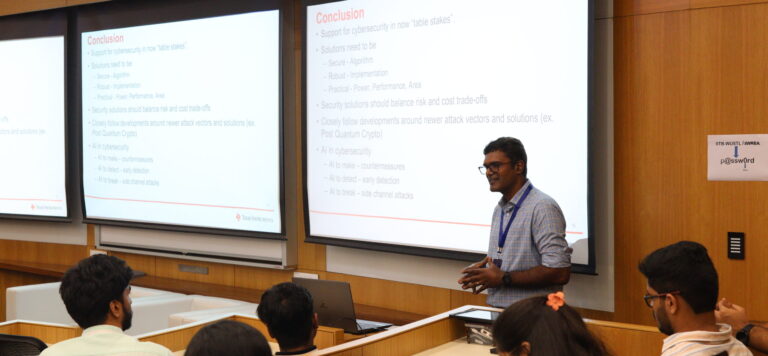
The second keynote address “Cybersecurity – A peek into automotive industry trends”, by Mr. Naveen Narayanan (Senior Member, Texas Instruments) focused on cybersecurity challenges in the automotive industry.
Mr. Narayanan outlined how global trends are shaping the need for cybersecurity in vehicles, covering topics such as hardware trust anchors and lifecycle security considerations.
His talk was followed by two panel discussions on emerging challenges in Hardware Security.
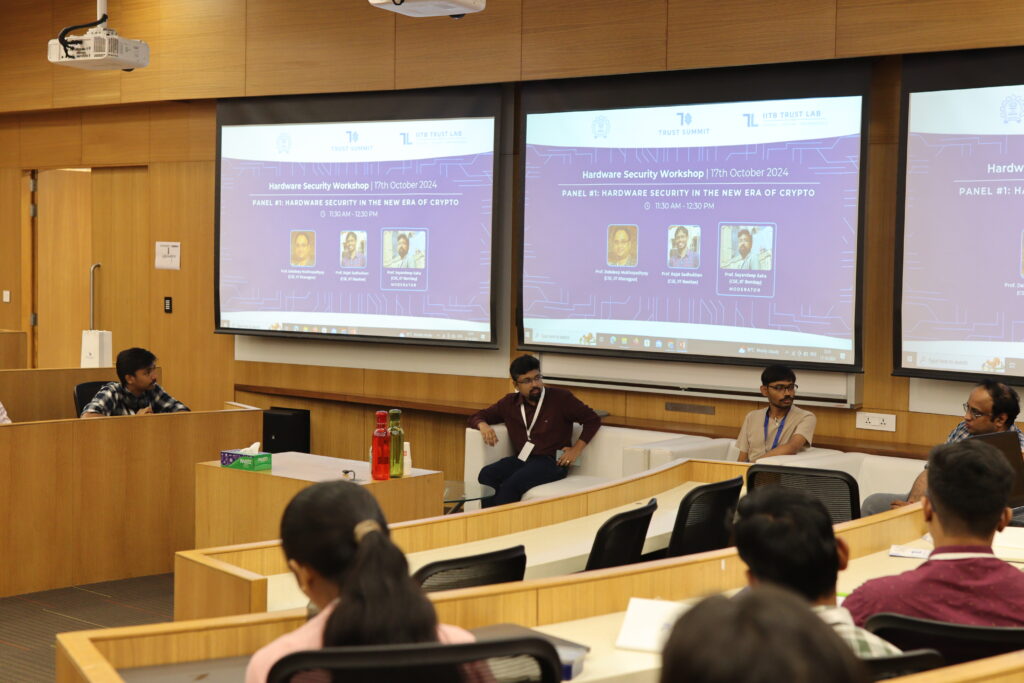
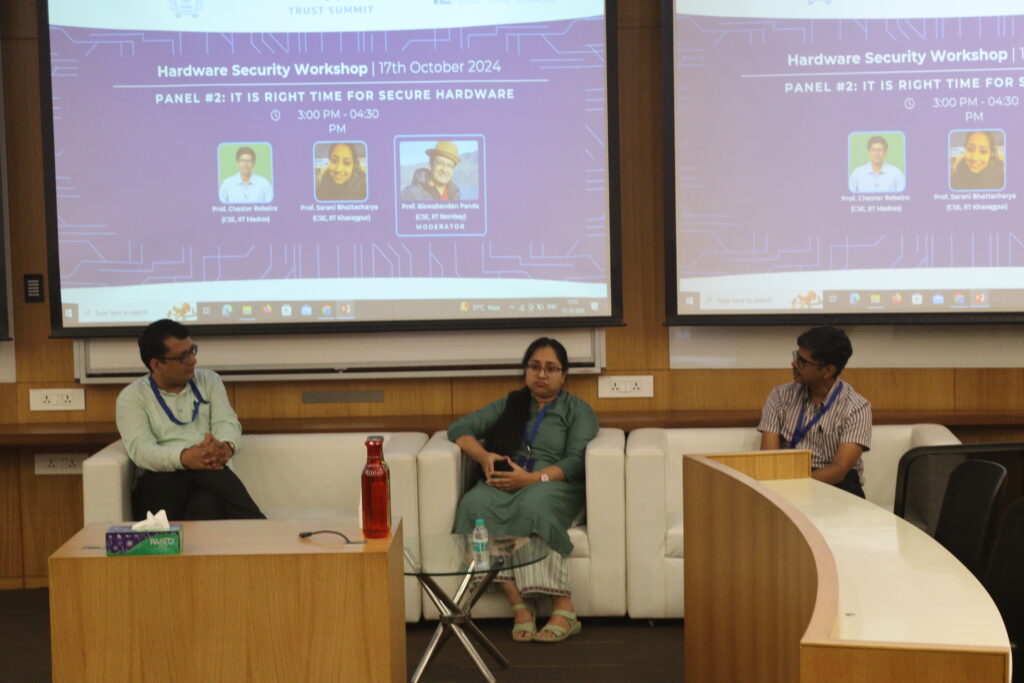
The first panel “Hardware Security in the new era of Crypto”, moderated by Prof. Sayandeep Saha (CSE, IIT Bombay), explored emerging trends in post-quantum cryptography (PQC), homomorphic encryption, and zero-knowledge proofs, and the challenges of implementing these advanced cryptographic techniques in hardware. The panellists included Prof. Mukhopadhyay and Prof. Rajat Sadhukhan (CSE, IIT Roorkee).
The second panel “It is Right Time for Secure Hardware”, featuring speakers Prof. Sarani Bhattacharya (CSE, IIT Kharagpur) and Prof. Chester Rebeiro (CSE, IIT Madras) and moderated by Prof. Biswabandan Panda from IIT Bombay, centered on the concept of secure-by-design hardware. This panel addressed how security can be incorporated as a fundamental aspect of commercial hardware.
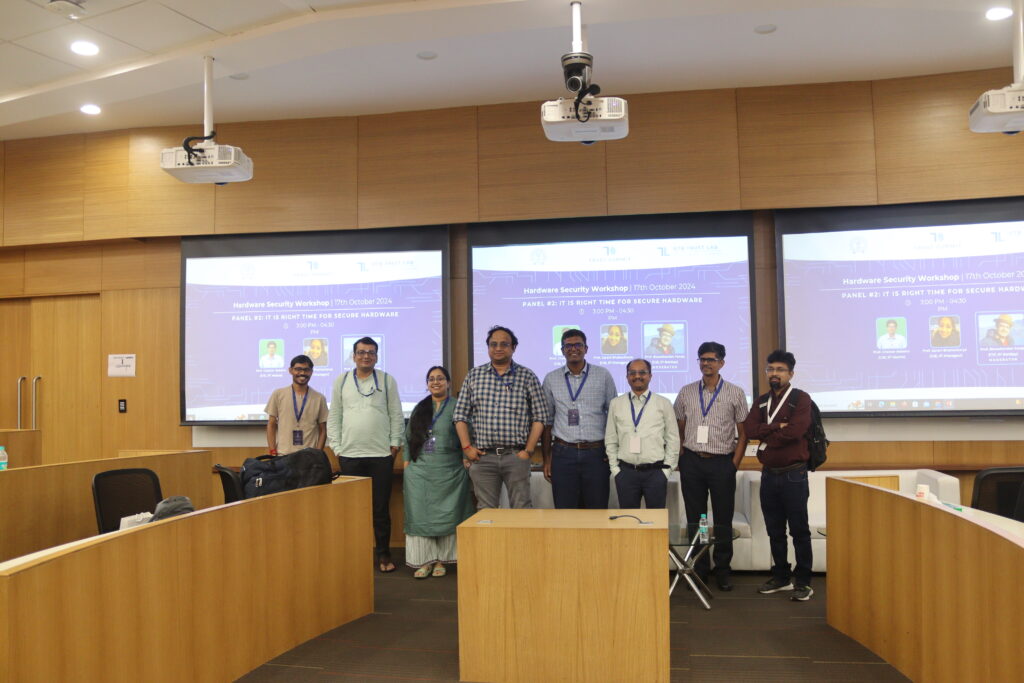
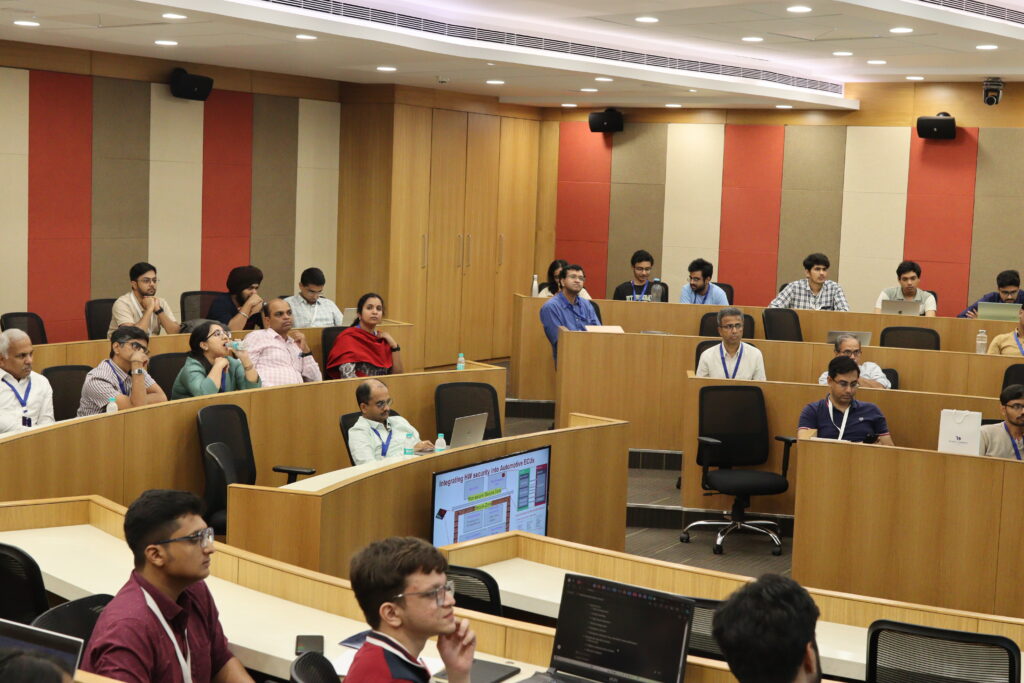
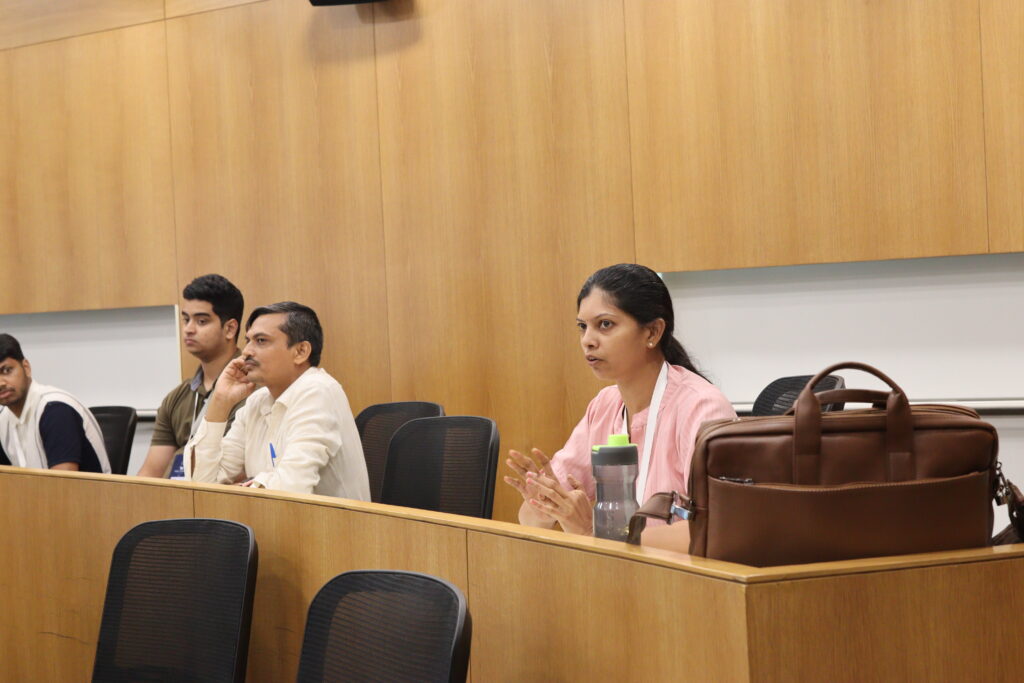
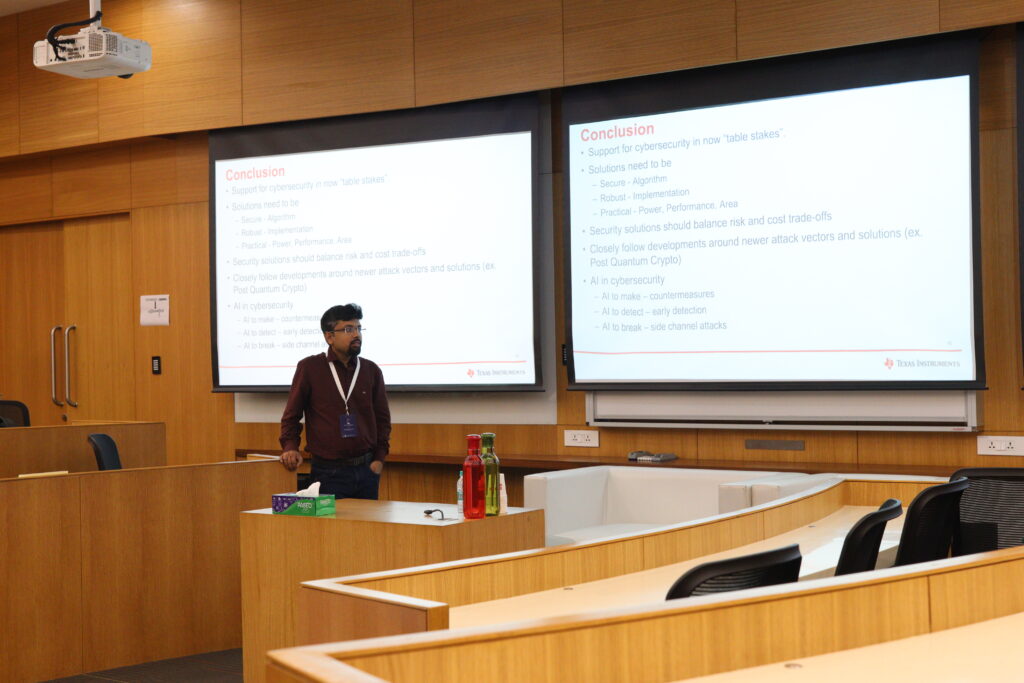
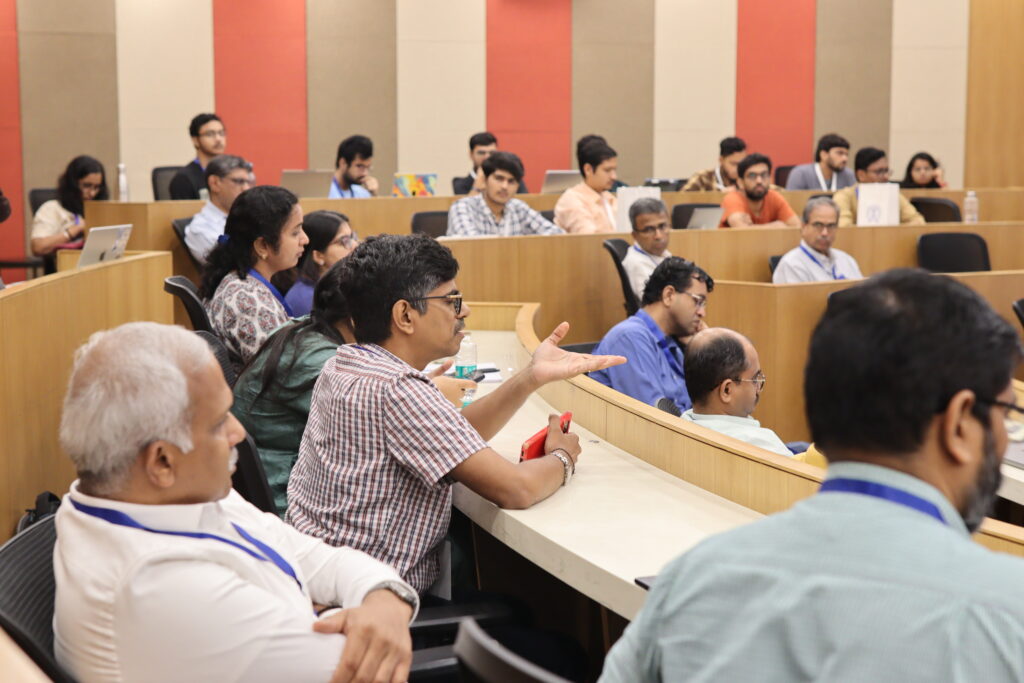
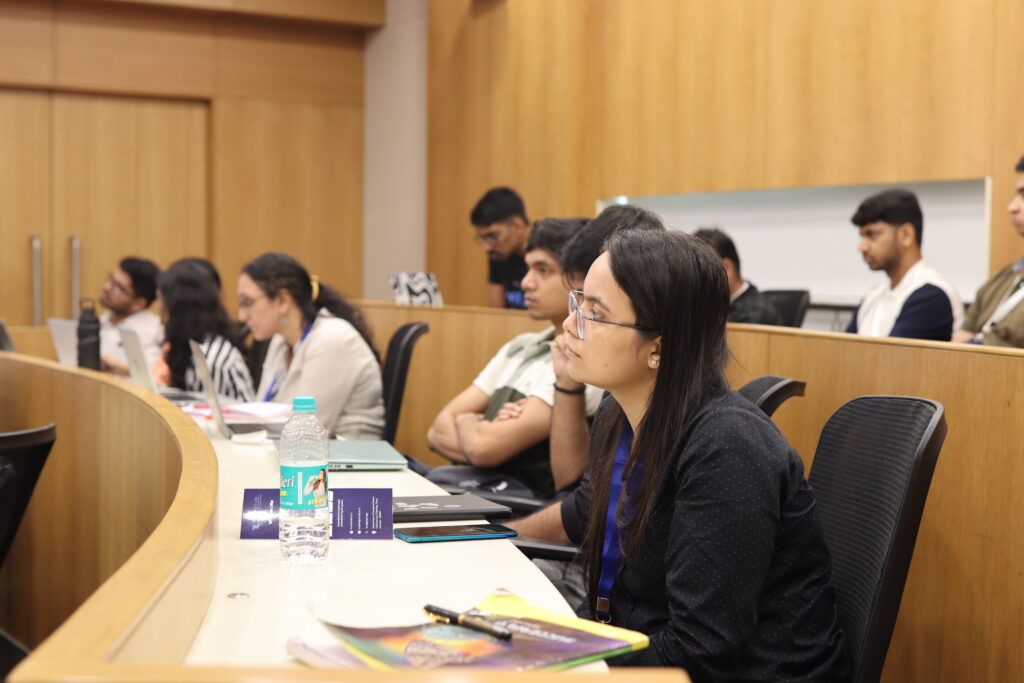
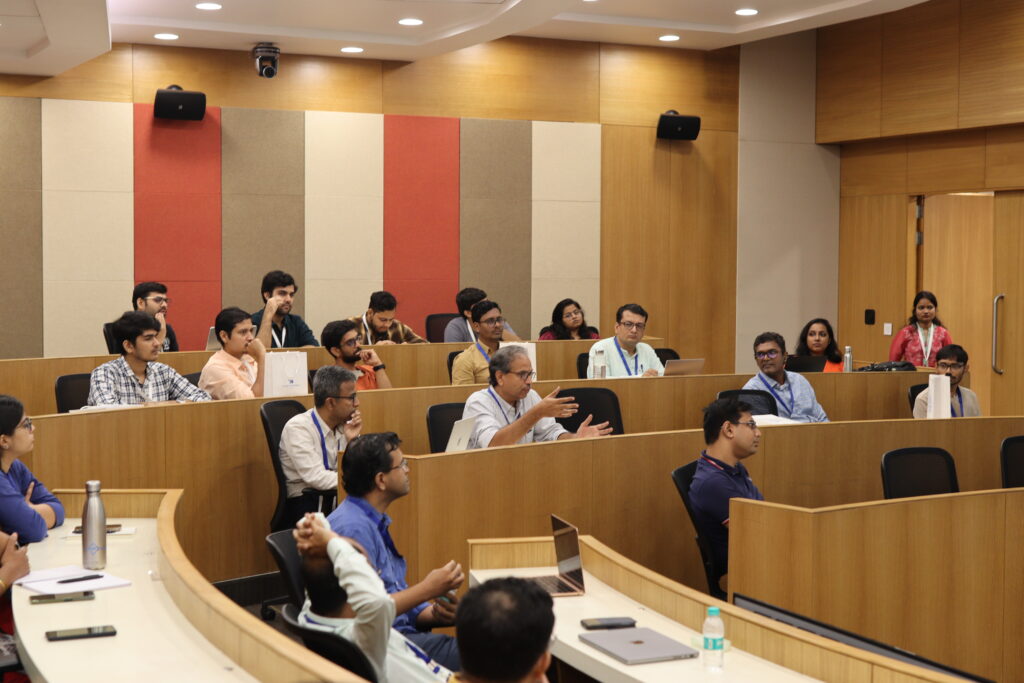
Day 2: October 18
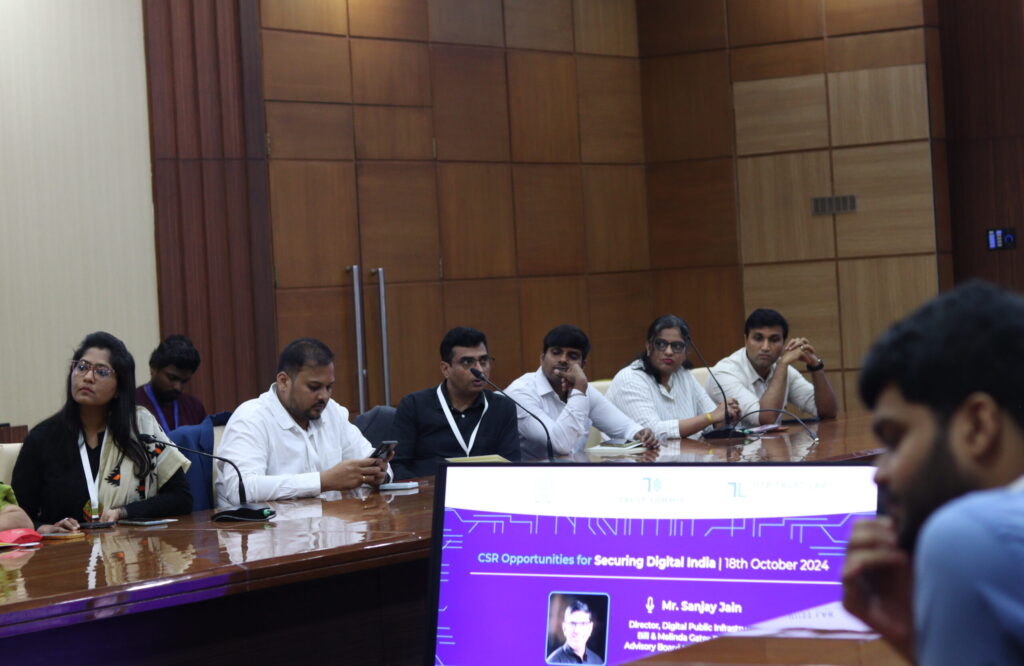
Morning Session: CSR Opportunities for Securing Digital India
The second day of the Summit, October 18th, opened with a session exploring Corporate Social Responsibility (CSR) opportunities in building a digital ecosystem to support the vision of Atmanirbhar Bharat.
Aligned with IITB Trust Lab’s Technology vertical, this session brought together corporate leaders and IITB Trust Lab leadership to discuss how CSR funding can drive essential research and educational initiatives at IITB Trust Lab.
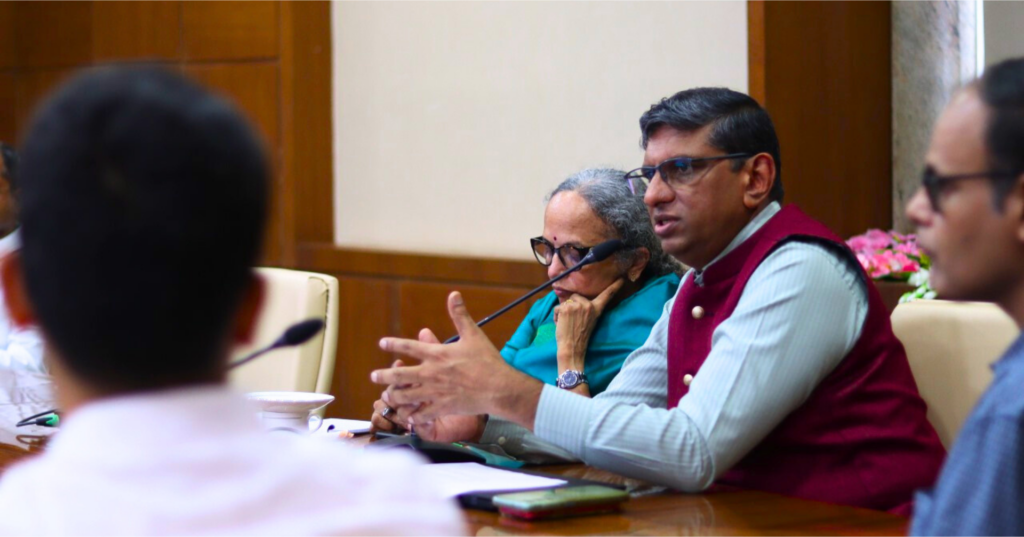
Mr. Sanjay Jain, Director of Digital Public Infrastructure at the Bill & Melinda Gates Foundation and an IITB Trust Lab Advisory Board Member, opened with a compelling keynote that traced India’s digital journey through transformative projects like Aadhaar and UPI.
He emphasized the importance of integrating security into digital systems from the outset to protect vulnerable communities. Mr. Jain highlighted the vital role of CSR in driving innovation and societal impact and commended IITB Trust Lab’s commitment to creating a secure digital landscape through education, research, and community engagement.

Ms. Rama Vedashree, former CEO of the Data Security Council of India and an IITB Trust Lab Advisory Board Member, emphasized the Lab’s role in bridging government, academia, and industry.
She lauded the Lab’s focus on affordable, open-source security solutions, particularly valuable for small enterprises and startups that may lack the resources for costly security tools.
She also discussed the potential for IITB Trust Lab to become a Center of Excellence in Digital Trust technologies and AI ethics.
The three new faculty members of IITB Trust Lab — Prof. Devashish Gosain, Prof. Sruthi Sekar, and Prof. Chethan Kamath — then took turns to provide an overview of their research.
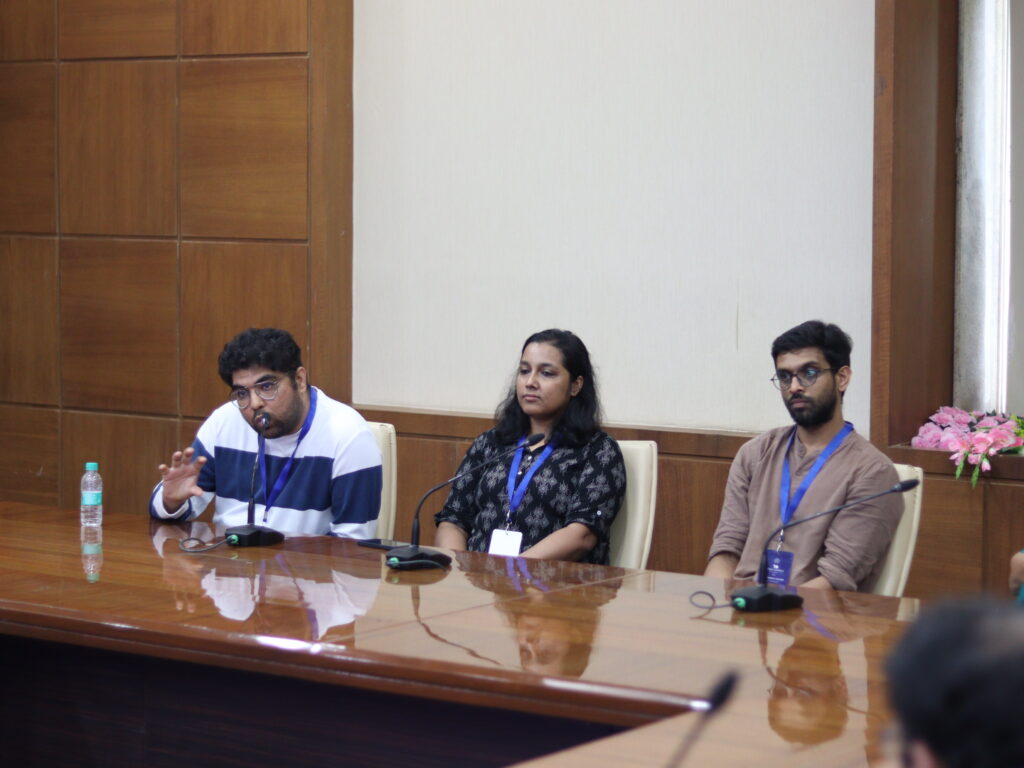
Prof. Devashish Gosain challenged conventional wisdom about online privacy, explaining how even when our messages are encrypted, the metadata about who we talk to and when can reveal more than we think. His research tackles what he calls “surveillance capitalism” – the hidden ways our digital footprints are tracked and monetized.
Prof. Sruthi Sekar presented her research on cryptocurrency security, where her work focuses on staying one step ahead of potential threats. Using advanced techniques like zero-knowledge proofs, she’s developing ways to keep blockchain transactions both private and verifiable.
Prof. Chethan Kamath talked about his work on cryptographic defenses against threats ranging from individual hackers to state-level actors. His specialty lies in creating “succinct arguments” – efficient ways to verify that cloud computations are done correctly without having to redo the entire calculation. This work could be crucial for ensuring trustworthy cloud services.
The morning session concluded with an engaging Q&A led by Mr. Mukul Joshi, where the audience shared valuable insights and perspectives on the challenges of Digital Trust and security.
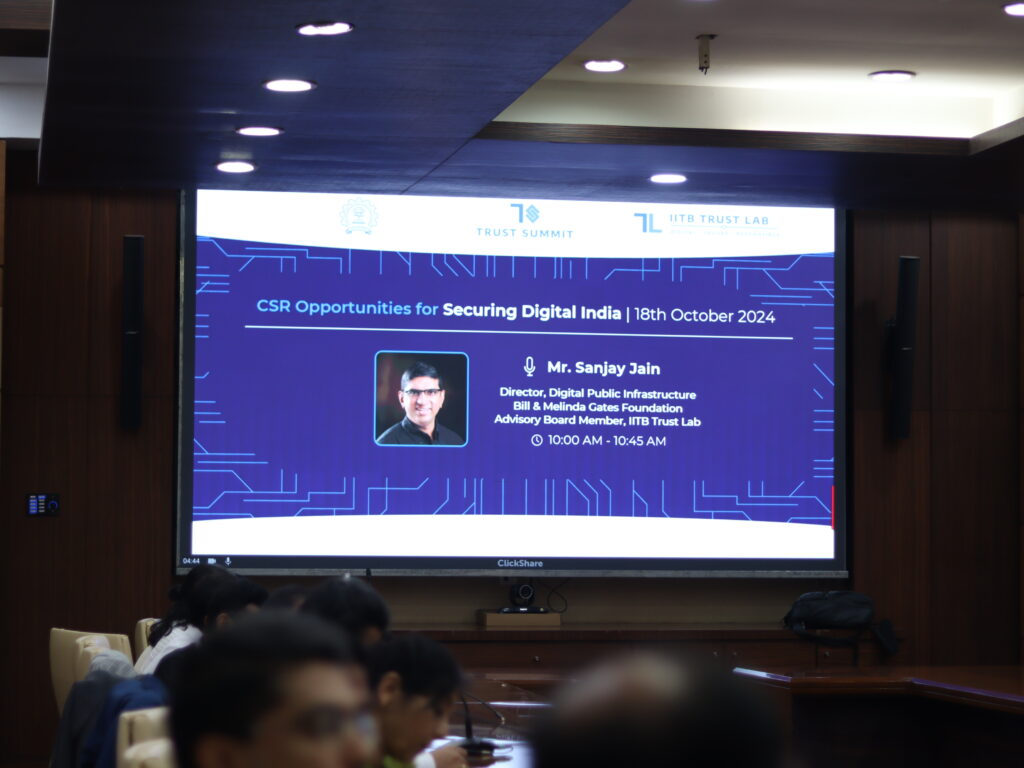
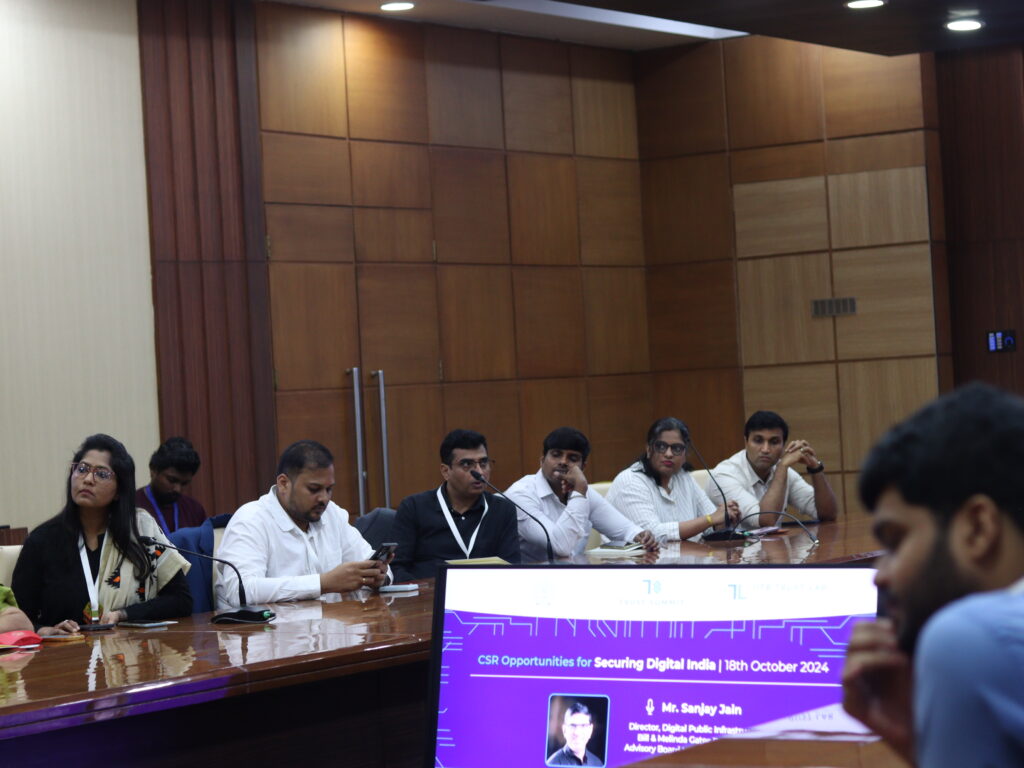
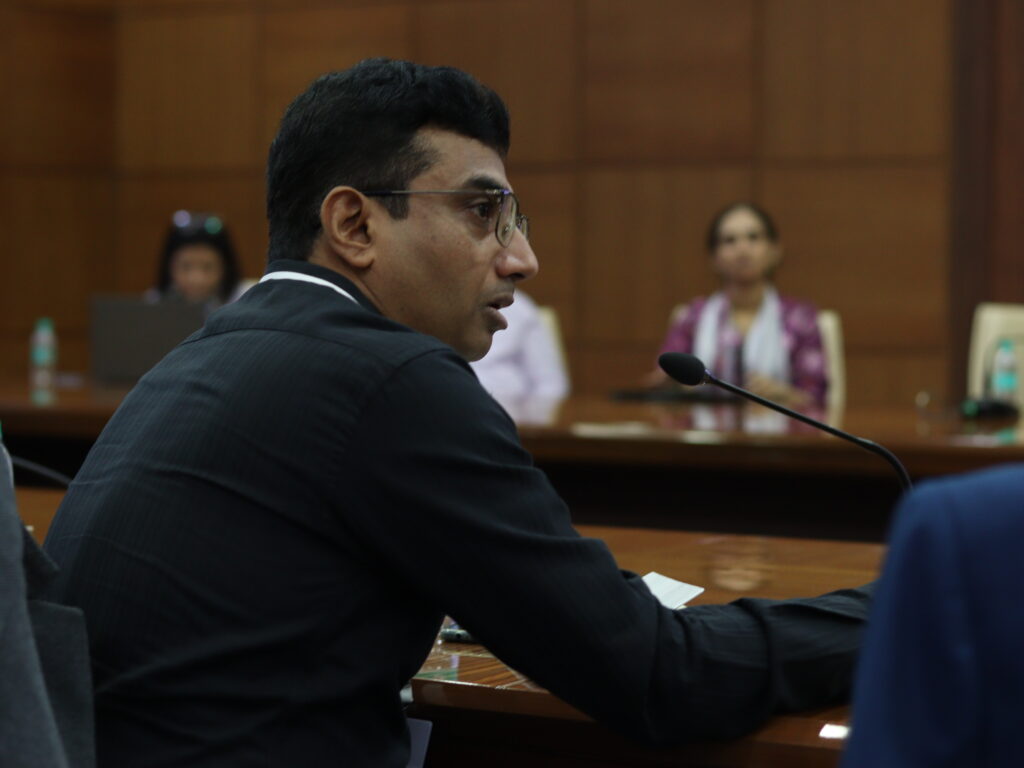
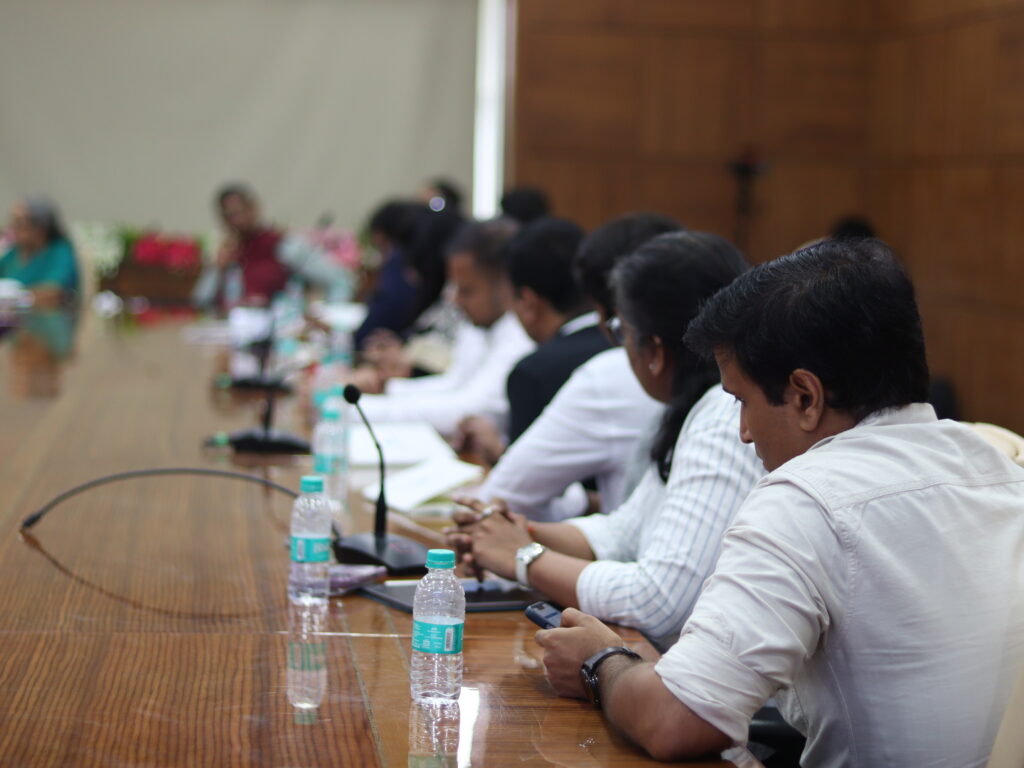
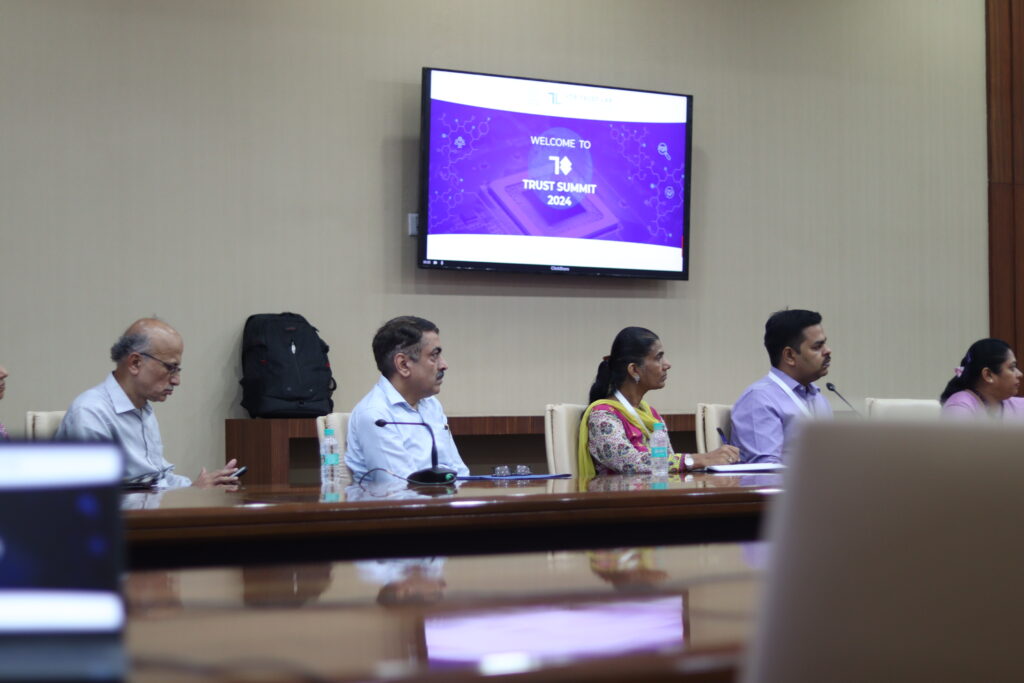
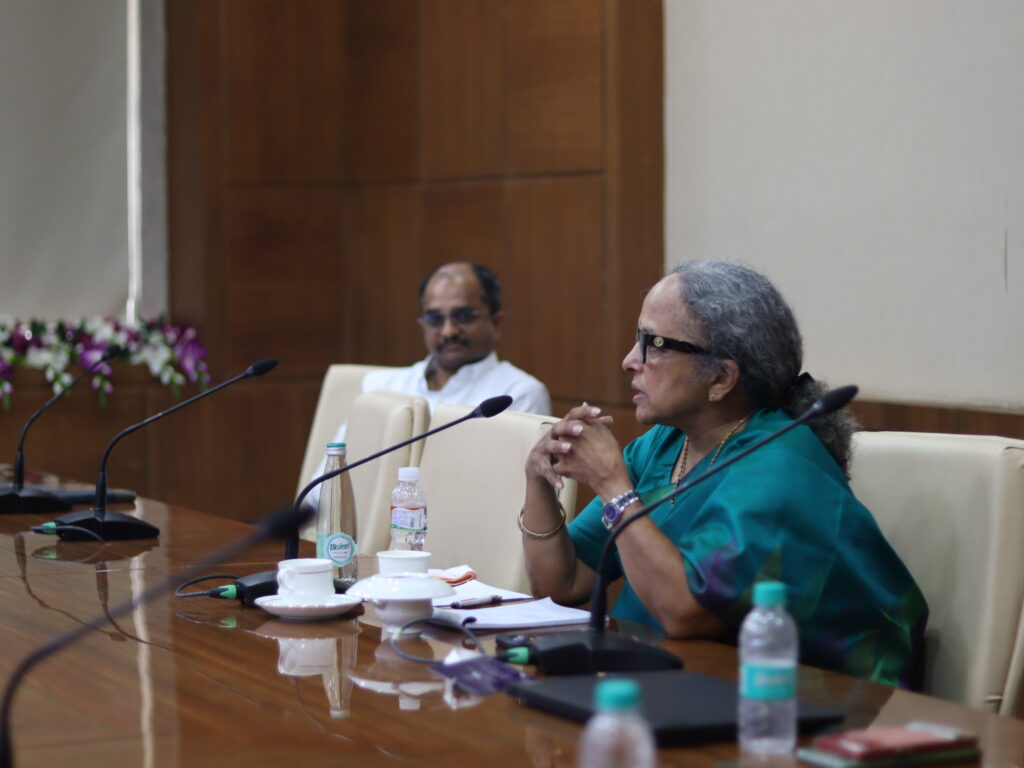
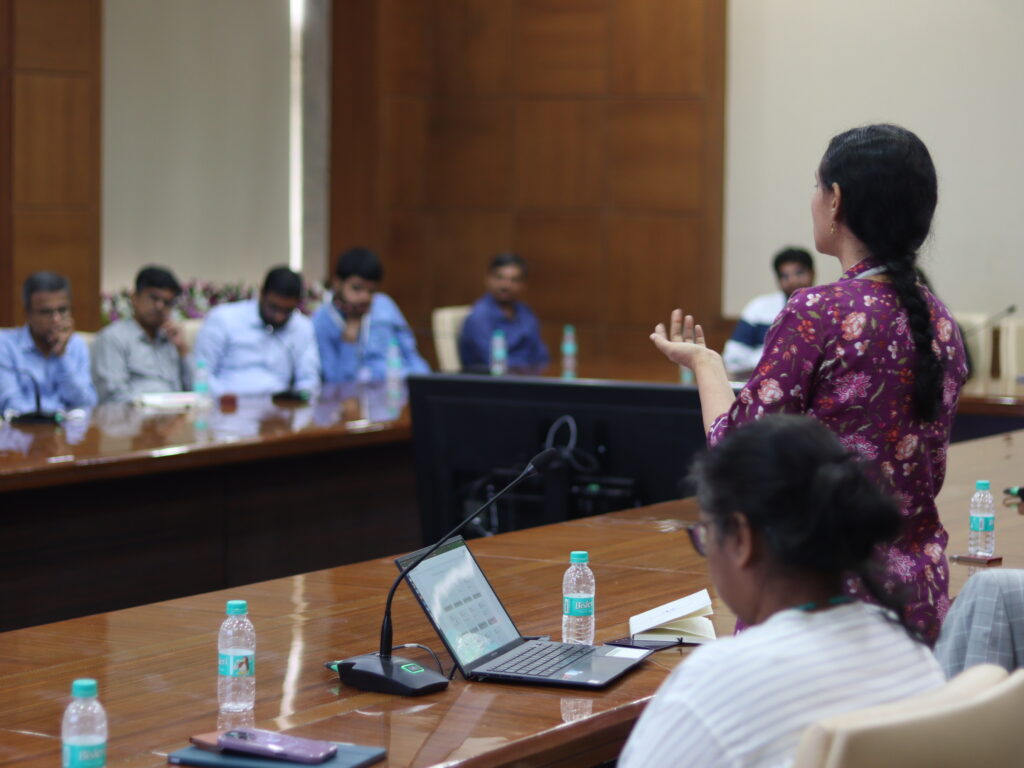
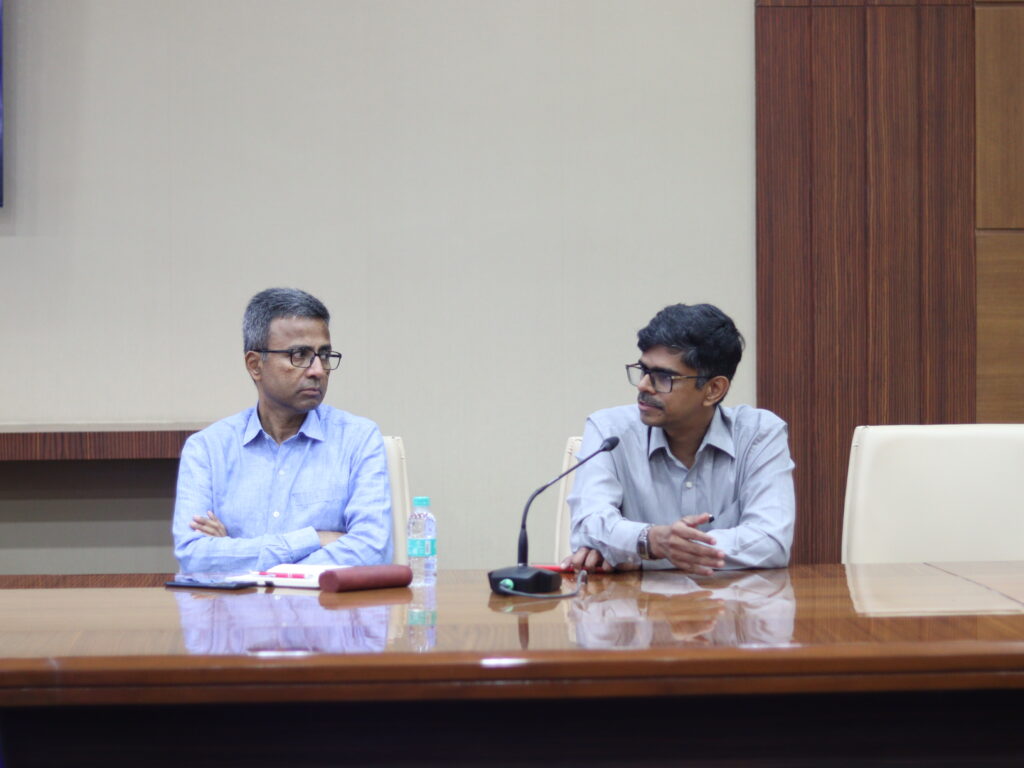
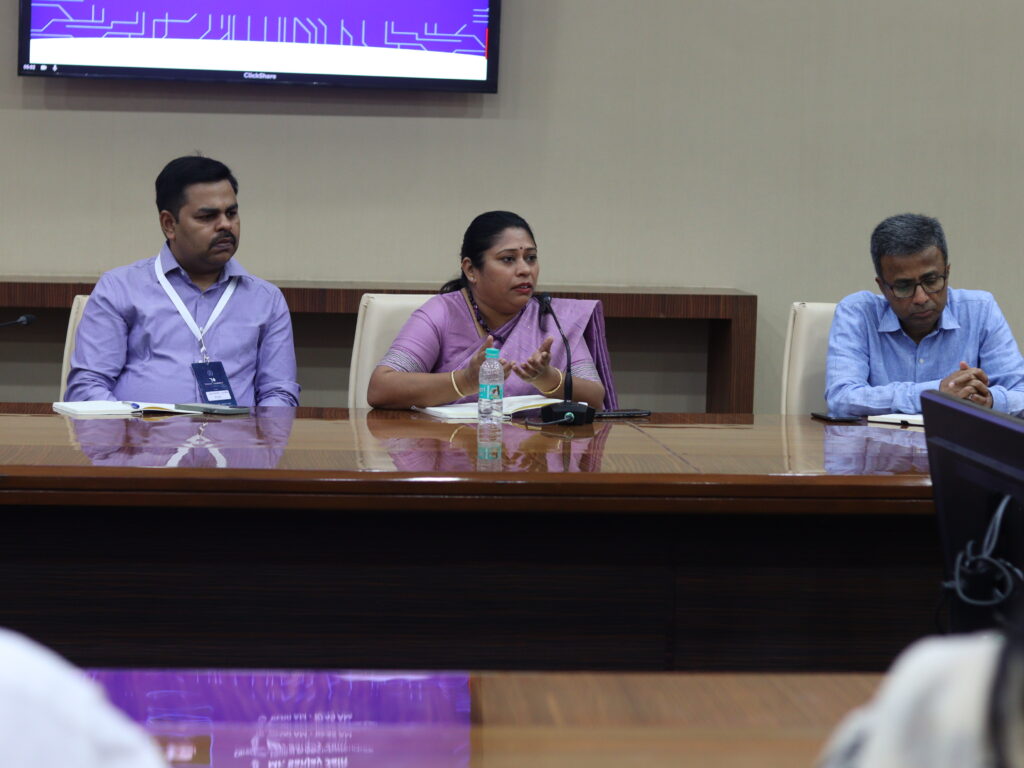
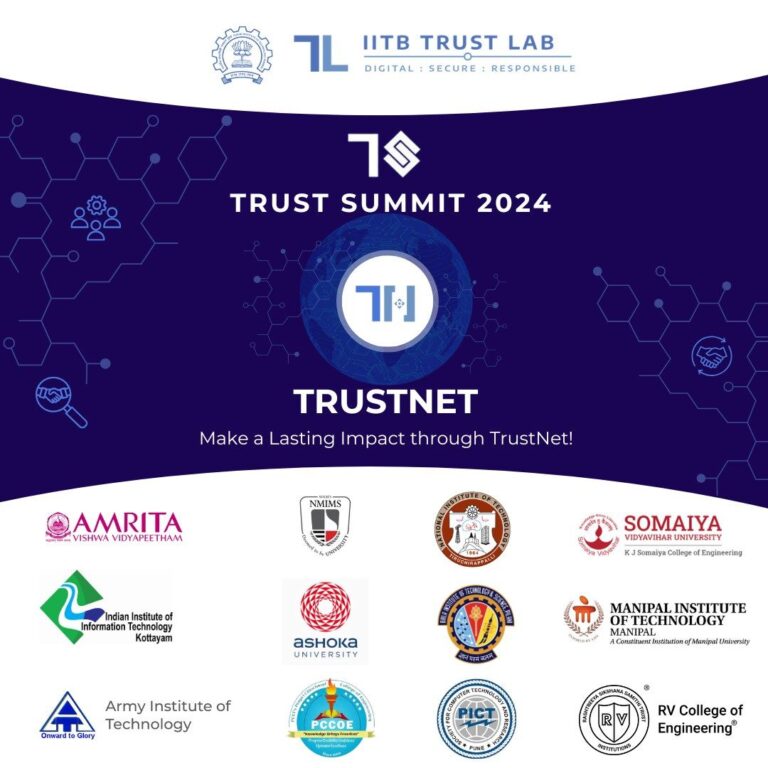
Afternoon Session: Collaborations through TrustNet
The afternoon session focused on building an ecosystem of collaboration with the official launch of TrustNet, an innovative platform connecting academic institutions to drive advancements in Digital Trust.
TrustNet is envisioned as a network of partners who share the vision of IITB Trust Lab for enabling a trustworthy digital environment.
Representatives from 12 academic institutions—including Amrita Vishwa Vidyapeetham, Army Institute of Technology (AIT) Pune, Ashoka University, BITS Pilani, IIIT Kottayam, K. J. Somaiya College of Engineering, Manipal Institute of Technology, Narsee Monjee Institute of Management Studies (NMIMS), NIT Tiruchirappalli, Pimpri Chinchwad College of Engineering (PCOE) Pune, Pune Institute of Computer Technology (PICT) Pune, and RV College of Engineering—participated in the discussions.
The session was also attended by representatives from the government and the industry.
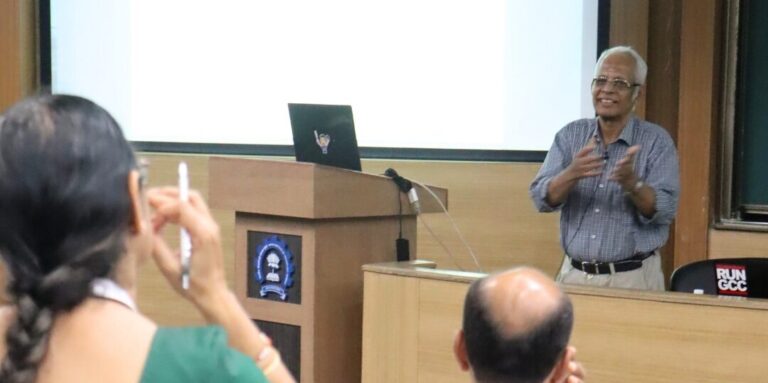
Prof. G. Sivakumar, Co-Principal Investigator of IITB Trust Lab, introduced TrustNet as a collaborative, open-source platform with a unique horizontal structure that encourages equal participation among institutions.
Unlike traditional top-down models, TrustNet promotes an open network where institutions can freely interact, contribute, evaluate, and provide feedback. Prof. Sivakumar highlighted TrustNet’s role in eliminating barriers to collaboration by channeling student energy into meaningful projects and enabling partnerships on shared objectives, maximizing impact through collective effort.
Prof. Sivakumar gave a brief overview of the Security Operations Center (SOC), emphasizing its role in providing students with practical cybersecurity experience. He introduced the Practical and Upbeat Labs for Security Education (PULSE) platform, which offers automated, self-graded security labs for students at different levels, aligning with industry needs and expanding educational outreach.
The session continued with presentations on two significant collaboration opportunities for TrustNet institutions. Ms. Palak Chopra, a Pre-Doctoral Researcher at IITB Trust Lab, introduced a FOSS-based SOC focused on email security. This project includes real-time anomaly detection, alert generation, and a comprehensive monitoring dashboard, inviting TrustNet members to contribute to its development and enhancement.
Next, Prof. Kameswari Chebrolu, Co-Principal Investigator at IITB Trust Lab, showcased PULSE, an initiative to create 20 scalable, auto-graded security labs covering web, network, OS, hardware, and enterprise security. Built on the cLab platform, these labs require minimal setup and provide automated assessments, making them easy to adopt across TrustNet institutions. The initiative offers member institutions a chance to co-develop and share practical security education resources.
The presentations concluded with each of the twelve participating institutions introducing themselves and outlining their vision for collaboration within TrustNet.
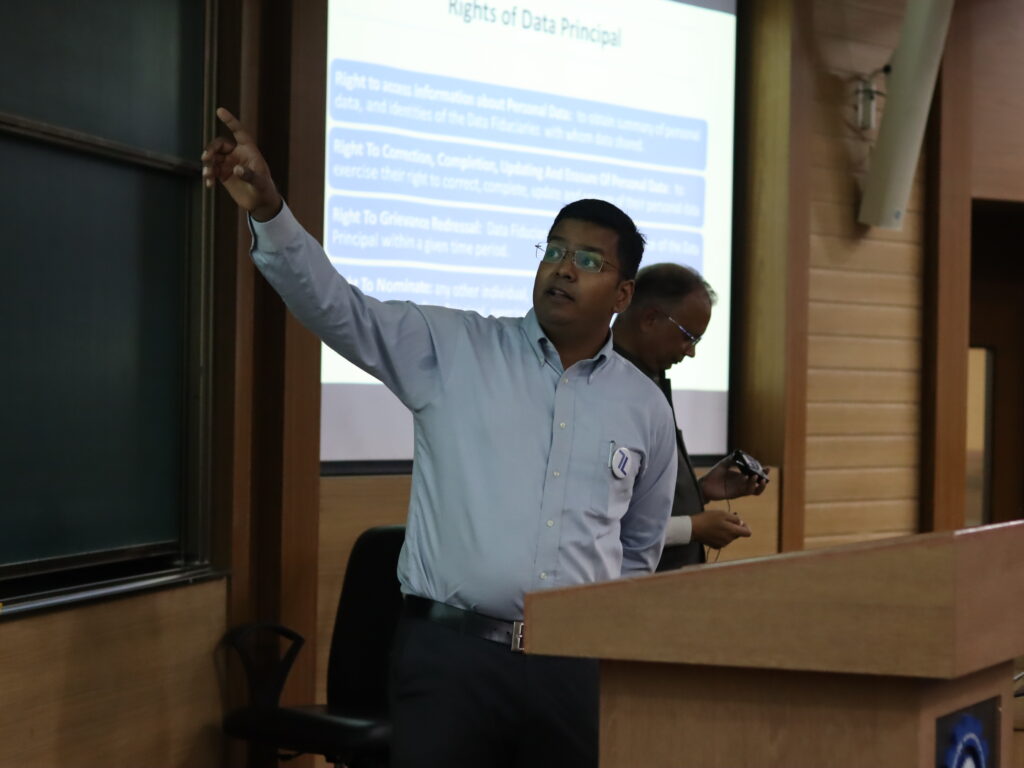
The TrustNet discussions featured valuable insights from representatives of the Ministry of Electronics and Information Technology (MeitY), who highlighted opportunities for collaboration with the Indian government. Shri Vikash Chourasia, Scientist D at MeitY, presented an overview of the Digital Personal Data Protection Act (DPDP) 2023 and the challenges surrounding its implementation. He explained how data protection has evolved from a theoretical concept to a vital need, using current examples to illustrate the growing significance of privacy in daily life.
Shri Deepak Goel, Scientist G and Group Coordinator at MeitY, then discussed the vast scale of India’s digital privacy challenge. With approximately 5,000 government departments processing data for 1.5 billion people and an average of 10 transactions per person annually, he highlighted the need for robust, scalable privacy solutions, especially for last-mile devices. He emphasized that academic expertise will be essential in meeting these demands.
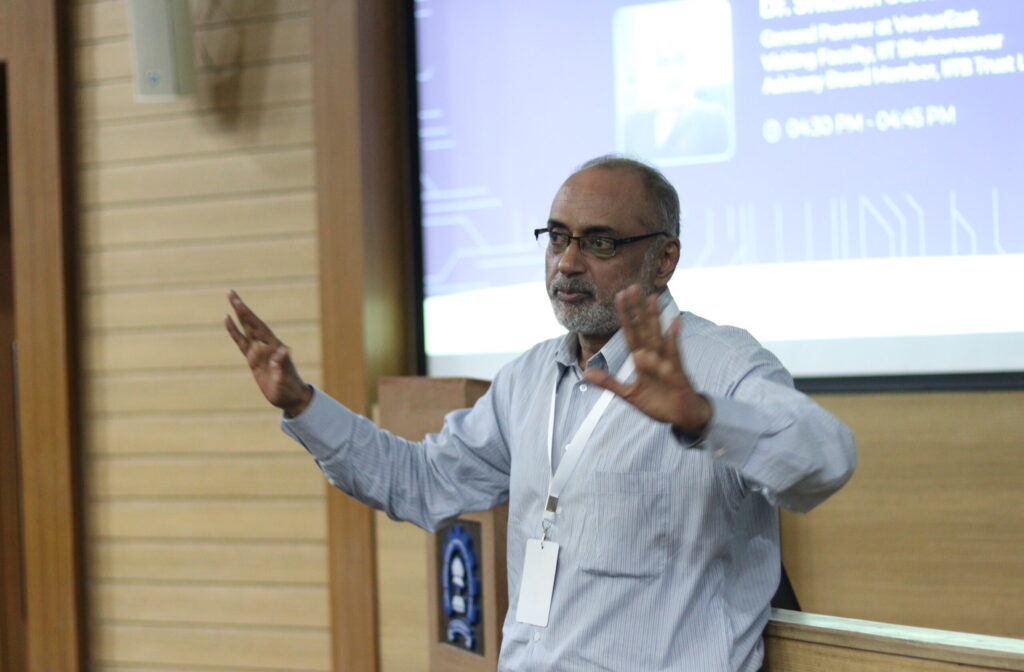
Dr. Srikanth Sundararajan, General Partner at VenturEast Advisors Pvt Ltd and Advisory Board Member of IITB Trust Lab, called for a shift in India’s approach to cybersecurity education. He stressed the importance of academic institutions specializing in distinct areas rather than duplicating similar programs.
Dr. Sundararajan advocated for stronger industry partnerships, encouraging academic institutes to work closely with established cybersecurity firms to develop hands-on projects that better equip graduates for real-world challenges.
He highlighted India’s unique landscape, describing it as a collection of digital economies with substantial offline gaps that cybercriminals often exploit. Rather than adopting U.S. or European standards, he urged the creation of solutions tailored specifically to India’s needs.
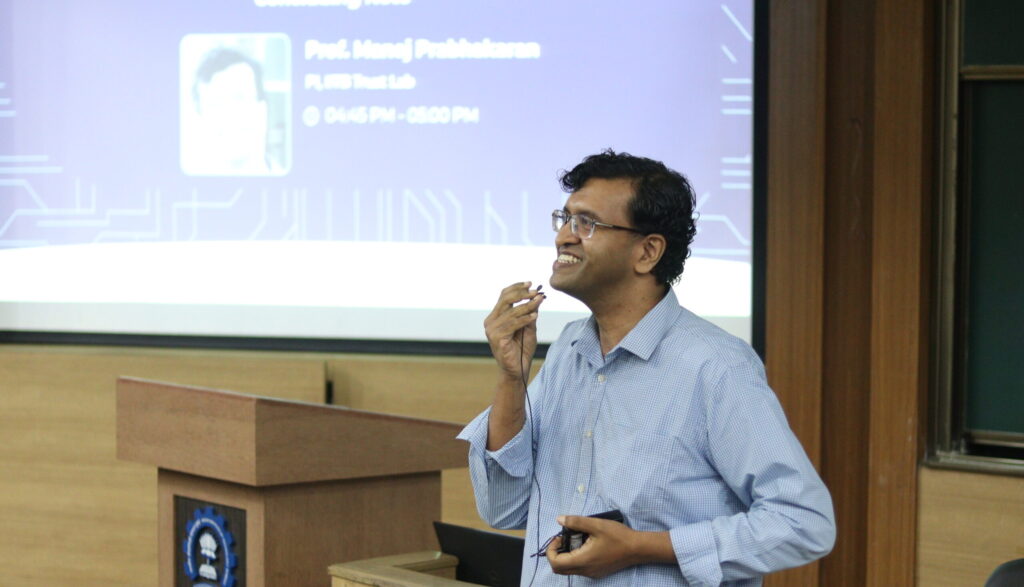
Prof. Manoj Prabhakaran, Principal Investigator of IITB Trust Lab, delivered the closing remarks, emphasizing the shared responsibility of building India’s cybersecurity expertise.
He described TrustNet as a catalyst for institutional collaboration across India, highlighting the need for coordinated efforts from multiple stakeholders to strengthen national cybersecurity education.
His call for active engagement and mutual learning echoed TrustNet’s mission to foster a collaborative ecosystem for Digital Trust.
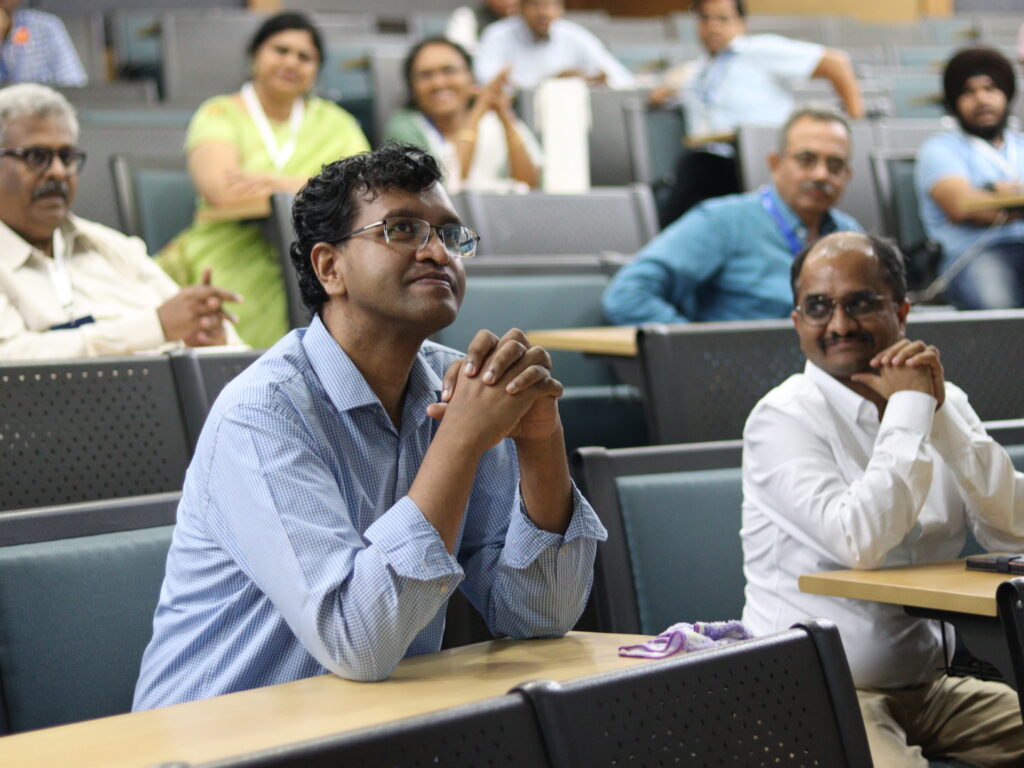
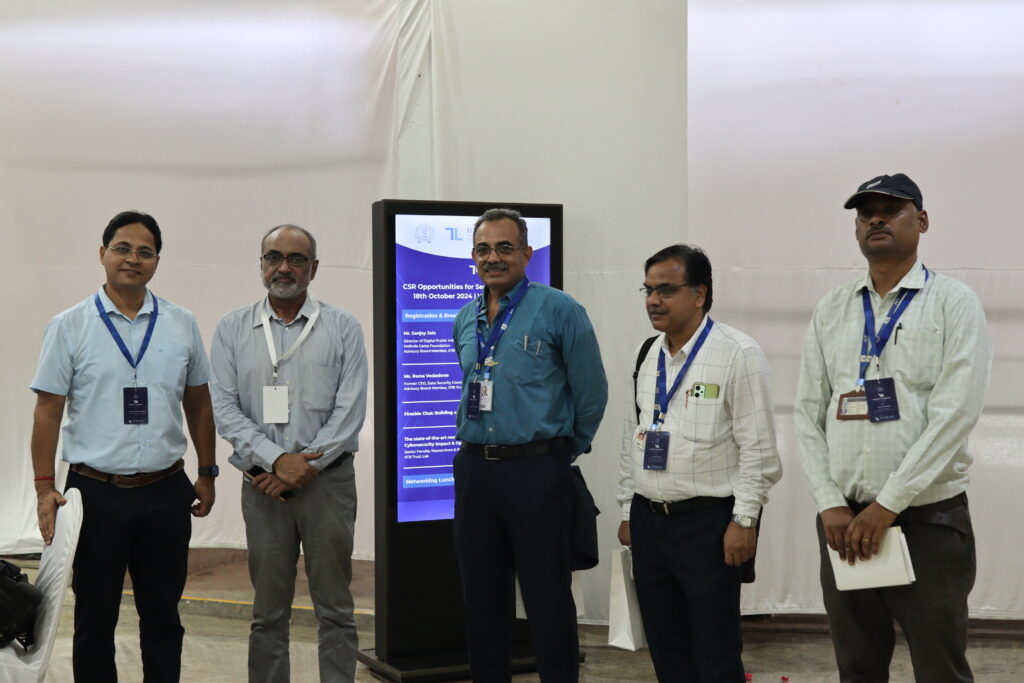
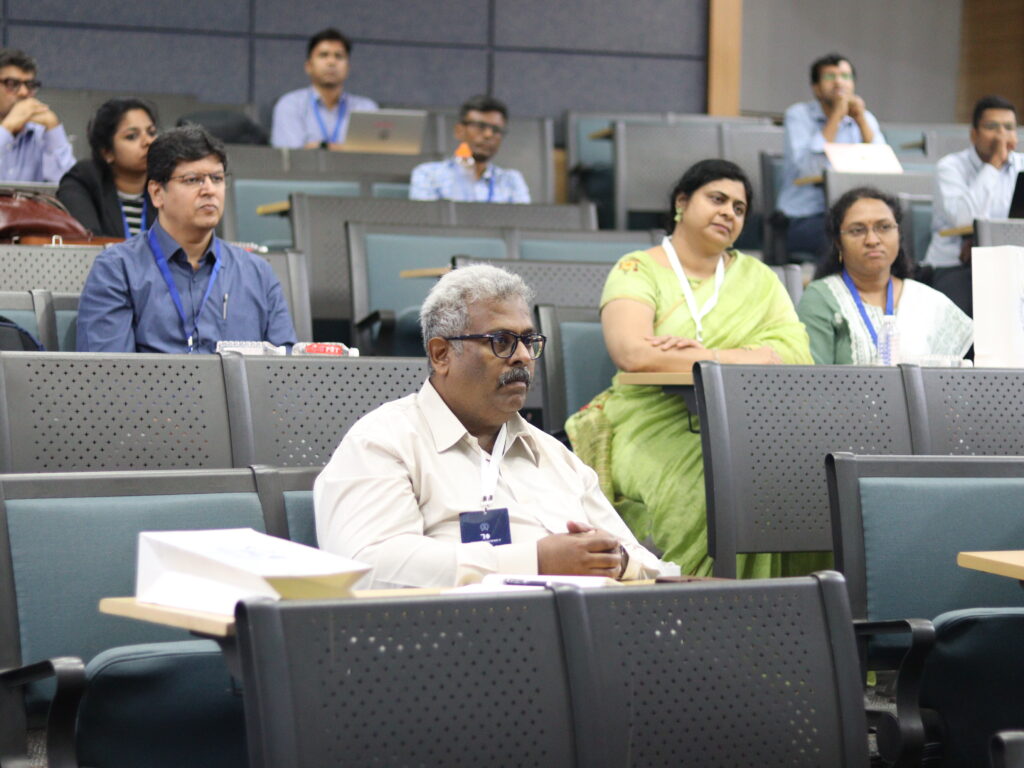
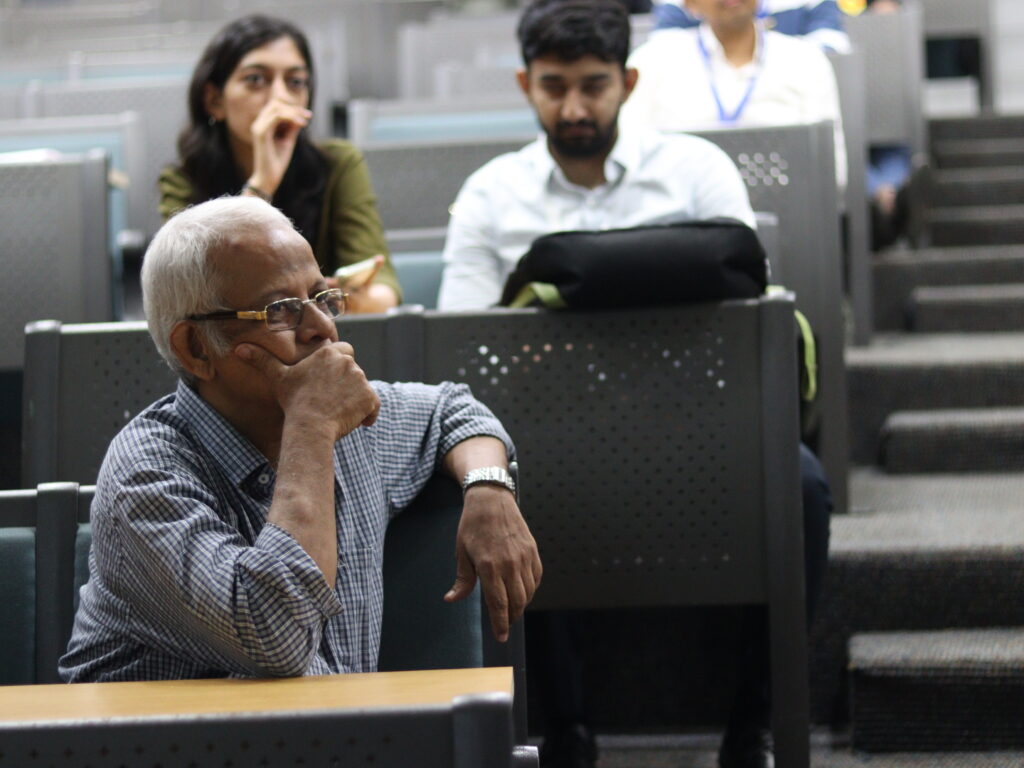
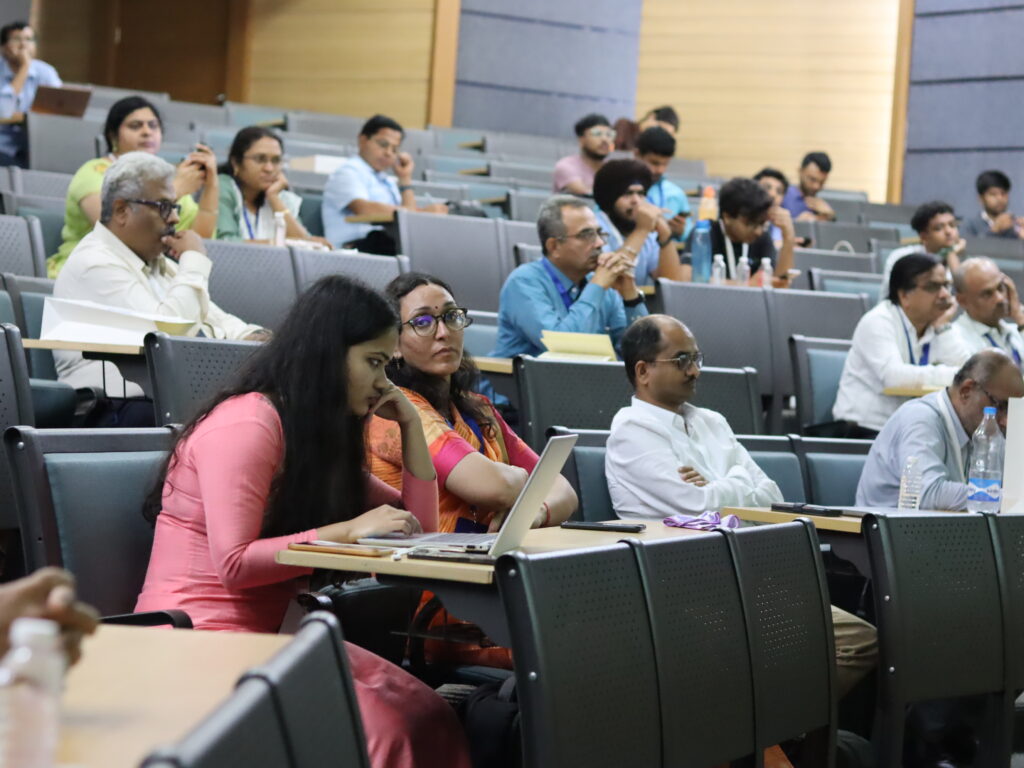
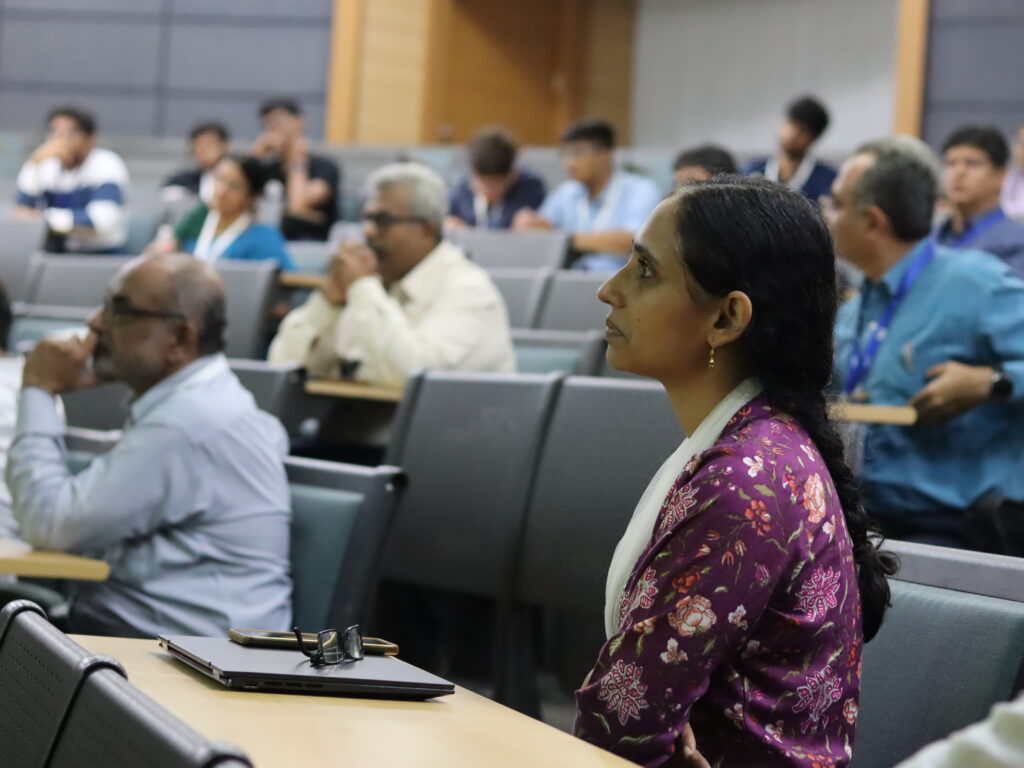
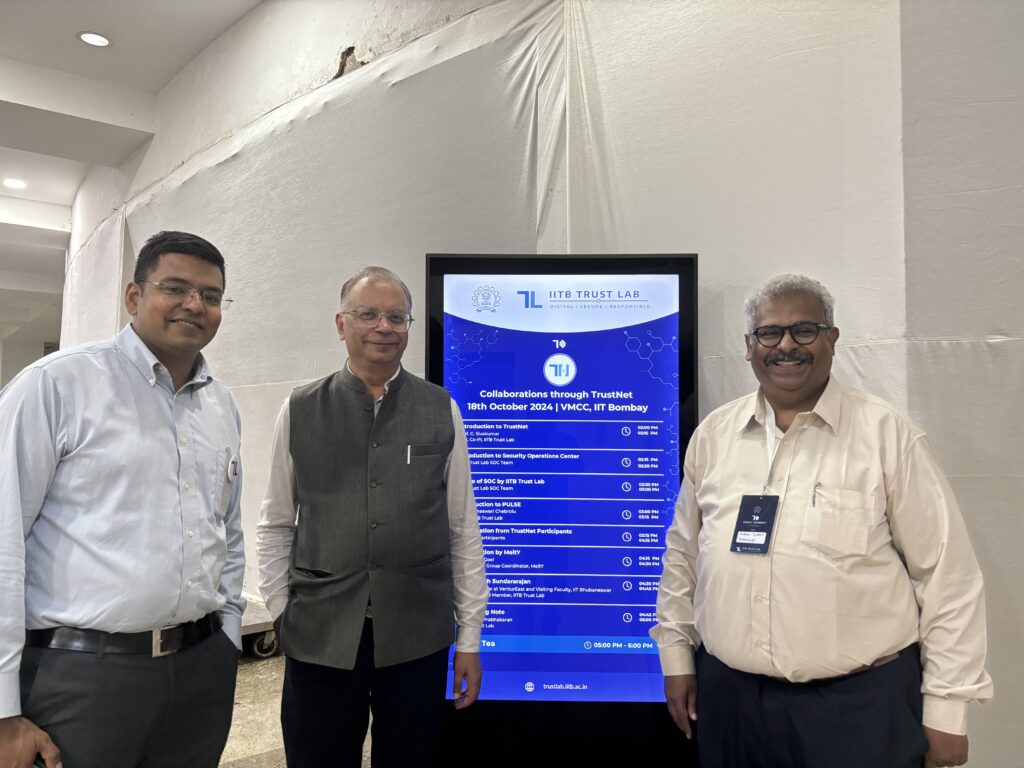
Trust Summit 2024 concluded on this forward-looking note, with participants energized by the possibilities of collaboration through TrustNet and a shared commitment to strengthening India’s Digital Trust ecosystem.

